|
5/30/14 |
7 Quick And Easy Ways Jack Up Your Home Value During Home Inspections |
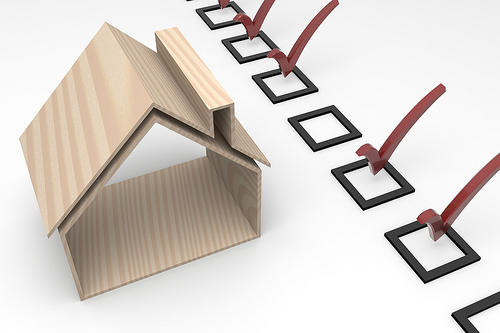
Are you planning to sell your home soon? It would be nice if you can sell it at the highest and most reasonable price, wouldn’t it? Fortunately, there are some additions you might want to consider if you want to raise the value of your home before having it inspected by professional home inspectors who can give an accurate evaluation of your house's value. Here are some effective ways on how you can easily increase the value of your home and make a real impression during your house inspection:
• Beautify your exterior – Your exterior is the first thing that potential buyers and home inspectors would see. You might want to make a good impression by making sure that your curb appeal is at the top of its game. Replacing your rusty street numbers, repainting your mailbox, repainting your door, and planting flowers along the walkway are just some examples of projects you can do.
• Create available space – Inside, you might want to free up and create some space. Take note that potential buyers would want to imagine their stuff in your home. But visualizing might be a little hard, if all they see in the rooms are filled with your furniture and belongings. Try to retain at least the basic furnishings like couches, tables, and chairs but make it look modern by creating space.
• Get things organized – Another great way in making your house more presentable and more sellable is to simply make things inside your house a little bit more organized. For example, you can always go to your garage and organize the messy tools that are scattered all over the place. No home inspectors or property buyers are going to appreciate a messy house!
• Improve your cabinets – Your cabinets are among the things that easily catch the attention of would-be buyers. Thus, it is important that these look great. You can always consider resurfacing or replacing your cabinets, but if you do not have cash and time for that, you can always have them refinished for a better look.
• Apply a fresh coat of paint – One of the easiest ways to improve all the rooms in your home is to simply give them a new paint job. You really have to consider repainting the major areas of your house, which are the bedrooms, the kitchen, the bathrooms, and the living room. Go for white and other light colors.
• Improve the look of your appliances – Appliances are important decorative elements in any room. That is why they would have to go well with the rest of the room. If it seems that your appliances are out of place, you might want to give them a new facelift. For example, you might want to replace your old and ugly dishwasher panel with a new one.
• Improve your lighting – Another way to improve the look of your home and even increase its value is to improve your lighting. Installing a few downlights over certain areas might actually improve the look of those areas in a big way. Also, installing inexpensive wall sconces might just go well along the hallway and give it a very classic look. Getting lighting improvements done generally would not be expensive so this is a way to kick your house value up with an economically sound price tag.
These are just some easy projects that you can do even in a weekend. Put effort into improving your home so that you would get the best value for it. Of course, part of making sure that your home is properly priced is hiring a good home inspector. For that, you can consider hiring Ricco Home Inspections!
Are you planning to sell your home soon? It would be nice if you can sell it at the highest and most reasonable price, wouldn’t it? Fortunately, there are some additions you might want to consider if you want to raise the value of your home before having it inspected by professional home inspectors who can give an accurate evaluation of your house's value. Here are some effective ways on how you can easily increase the value of your home and make a real impression during your house inspection:
• Beautify your exterior – Your exterior is the first thing that potential buyers and home inspectors would see. You might want to make a good impression by making sure that your curb appeal is at the top of its game. Replacing your rusty street numbers, repainting your mailbox, repainting your door, and planting flowers along the walkway are just some examples of projects you can do.
• Create available space – Inside, you might want to free up and create some space. Take note that potential buyers would want to imagine their stuff in your home. But visualizing might be a little hard, if all they see in the rooms are filled with your furniture and belongings. Try to retain at least the basic furnishings like couches, tables, and chairs but make it look modern by creating space.
• Get things organized – Another great way in making your house more presentable and more sellable is to simply make things inside your house a little bit more organized. For example, you can always go to your garage and organize the messy tools that are scattered all over the place. No home inspectors or property buyers are going to appreciate a messy house!
• Improve your cabinets – Your cabinets are among the things that easily catch the attention of would-be buyers. Thus, it is important that these look great. You can always consider resurfacing or replacing your cabinets, but if you do not have cash and time for that, you can always have them refinished for a better look.
• Apply a fresh coat of paint – One of the easiest ways to improve all the rooms in your home is to simply give them a new paint job. You really have to consider repainting the major areas of your house, which are the bedrooms, the kitchen, the bathrooms, and the living room. Go for white and other light colors.
• Improve the look of your appliances – Appliances are important decorative elements in any room. That is why they would have to go well with the rest of the room. If it seems that your appliances are out of place, you might want to give them a new facelift. For example, you might want to replace your old and ugly dishwasher panel with a new one.
• Improve your lighting – Another way to improve the look of your home and even increase its value is to improve your lighting. Installing a few downlights over certain areas might actually improve the look of those areas in a big way. Also, installing inexpensive wall sconces might just go well along the hallway and give it a very classic look. Getting lighting improvements done generally would not be expensive so this is a way to kick your house value up with an economically sound price tag.
These are just some easy projects that you can do even in a weekend. Put effort into improving your home so that you would get the best value for it. Of course, part of making sure that your home is properly priced is hiring a good home inspector. For that, you can consider hiring Ricco Home Inspections! |
|
5/30/14 |
A Look At Renovation Projects That Simply Spell Bad ROI |
Anyone who wants to sell his home would want to sell it with incoming profits from the house sale. That is why so many home sellers are concerned about the various renovations that would increase the value of their home. So many people spend a lot of money as well as time just to make sure that their home would be sold at a good price. While nothing is wrong with that, there are still some renovations that might not be worth the money and effort. Should you wish to sell your home in the future, here are the top renovation projects that you have to avoid:
Installing a swimming pool
Who would not want to have his own swimming pool in his own property? It is true that swimming pools really add a veil of desirability to the property. But if you wish to have a pool installed in your property a few months before you sell it, then you might want to think twice. The cost you have put into installing that pool isn't going to pay off itself within such a short time. Also, take note that installing your pool would increase the energy costs. Some property buyers want a sustainable house without having high energy costs so this pool project might just spell bad ROI for you!
Overdoing your landscape beautification
Nothing is wrong in improving your landscape in order to make your property more appealing. You would want it to be presented in the best way possible, wouldn’t you? But you have to be careful about overdoing landscape renovation. There are so many people who spend too much on creating a landscape paradise that they do not realize they are emptying their pockets already. Remember that your goal for renovating is so that you can get your house for a higher price. Your top goal is to earn money from the house sale. You would not want to lose money at the end because of expensive landscaping.
Adding another room
There are also those who think that adding a room to their house would increase its value. This might seem like a good idea, but it isn’t. A good alternative to room addition is simply proper space allocation. If there is a room in your house that is really big, then you might want to consider dividing it into two. Of course, you would have to worry about certain costs such as installing new windows and new doors. But these costs are nothing compared to the big expenses you might have to deal with if you consider having another room constructed in your property.
Replacing your roof
Replacing your roof is only a good idea if it is has already reached its maximum lifespan. But if your roof is still in a good shape, you should not consider replacing it even if it is damaged in some parts. This is because the additional value that can be added to your home’s selling price might not be enough to cover the costs of replacing your roof. Yes, an ugly, roof might turn some buyers away. But you can always consider repair instead of replacement.
These are just some of the renovation projects that you might want to avoid. If you really want your home value to increase, you should go for less expensive projects like going for a new paint job inside your house or even painting your house's exteriors. Of course, you would also need the help of reliable home inspectors, if you want your home to be sold at the best price. For that, you can consider Ricco Home Inspections!
Anyone who wants to sell his home would want to sell it with incoming profits from the house sale. That is why so many home sellers are concerned about the various renovations that would increase the value of their home. So many people spend a lot of money as well as time just to make sure that their home would be sold at a good price. While nothing is wrong with that, there are still some renovations that might not be worth the money and effort. Should you wish to sell your home in the future, here are the top renovation projects that you have to avoid:
Installing a swimming pool

Who would not want to have his own swimming pool in his own property? It is true that swimming pools really add a veil of desirability to the property. But if you wish to have a pool installed in your property a few months before you sell it, then you might want to think twice. The cost you have put into installing that pool isn't going to pay off itself within such a short time. Also, take note that installing your pool would increase the energy costs. Some property buyers want a sustainable house without having high energy costs so this pool project might just spell bad ROI for you!
Overdoing your landscape beautification
Nothing is wrong in improving your landscape in order to make your property more appealing. You would want it to be presented in the best way possible, wouldn’t you? But you have to be careful about overdoing landscape renovation. There are so many people who spend too much on creating a landscape paradise that they do not realize they are emptying their pockets already. Remember that your goal for renovating is so that you can get your house for a higher price. Your top goal is to earn money from the house sale. You would not want to lose money at the end because of expensive landscaping.
Adding another room
There are also those who think that adding a room to their house would increase its value. This might seem like a good idea, but it isn’t. A good alternative to room addition is simply proper space allocation. If there is a room in your house that is really big, then you might want to consider dividing it into two. Of course, you would have to worry about certain costs such as installing new windows and new doors. But these costs are nothing compared to the big expenses you might have to deal with if you consider having another room constructed in your property.
Replacing your roof
Replacing your roof is only a good idea if it is has already reached its maximum lifespan. But if your roof is still in a good shape, you should not consider replacing it even if it is damaged in some parts. This is because the additional value that can be added to your home’s selling price might not be enough to cover the costs of replacing your roof. Yes, an ugly, roof might turn some buyers away. But you can always consider repair instead of replacement.
These are just some of the renovation projects that you might want to avoid. If you really want your home value to increase, you should go for less expensive projects like going for a new paint job inside your house or even painting your house's exteriors. Of course, you would also need the help of reliable home inspectors, if you want your home to be sold at the best price. For that, you can consider Ricco Home Inspections!
|
|
5/30/14 |
Widely Seen Problems That Are Encountered During Home Inspections |
Are you planning to purchase a home? You should consider hiring a home inspector to look at your potential new home before signing on the dotted line. Home inspections work on two sets of spectrums: A home inspector can make sure that the house you are selling is sold at the best rate possible. And if you are at the buying end, a home inspector can make sure that you are being offered the right selling price for your desired home. Well, home inspectors determine the value of homes by considering the "good" features in that property as well as look out for problems in that property. If in case you are curious as to what problems most home inspectors usually find, here are some examples:
• Roofing damage – Most inspectors would get a ladder and go up your roof and take a look at it. The roof is one of the most important parts of the home and that is why inspectors who are checking your property are interested if it is still in good condition. Roofing materials deteriorate as the years pass by. Of course, a house with bad roofing would get a huge mention in the home inspection report.
• Faulty wiring – Home inspectors are also concerned about your house wiring. Faulty wiring is a fire hazard and a house with an outdated wiring can be considered as dangerous. Since electrical problems are related to safety, you have to attend to them right away, especially if you want your home to be sold at a very good price.
• Plumbing issues – Home inspectors also check the plumbing system in your home. They check the pipes to make sure that these are not leaking. Water stains and even mold are obvious signs of plumbing leaks. So if you have these clues of leakage in your home, it is important that you have your plumbing system fixed right away. Imagine a potential buyer seeing that your house has major plumbing leaks! I am sure he or she will press down the house price that you have initially asked for, quoting this as a reason!
• Bad drainage – Water has to flow out of your property in order to prevent damp crawlspaces and a faulty, wet foundation. If water is not flowing out of your property, your walls might also rot and acquire a lot of mold. One of the obvious signs of foundation movement caused by bad drainage is an uneven floor. A property with poor drainage does not really sell well in the market. Any responsible home inspector will certainly point this out so do not expect to get off the hook on this one.
• Faulty appliances – The facilities of a home and its features are not the only things that home inspectors give attention to. They also look at home appliances especially if these would be sold along with the property. Usually, home inspectors make these appliances run more than once to make sure that they are working well.
• HVAC issues – If your home has an HVAC system, then inspectors would also take a look at it. But from market studies, there are a lot of home inspectors who do not specialize in this area. If you are to sell your home or buy a home, and your home inspector does not specialize in HVAC inspection, you might want to consider hiring a specialized HVAC inspector aside from your official inspector.
These are just some of the problems that home inspectors check during their home inspection tasks. Thus, this article can serve as a heads up for you if you are planning to hire a home inspector soon – regarding whether you are a home seller or a home buyer. If in case you have not found a good home inspector yet, you can always consider hiring the experts from Ricco Home Inspections.

Are you planning to purchase a home? You should consider hiring a home inspector to look at your potential new home before signing on the dotted line. Home inspections work on two sets of spectrums: A home inspector can make sure that the house you are selling is sold at the best rate possible. And if you are at the buying end, a home inspector can make sure that you are being offered the right selling price for your desired home. Well, home inspectors determine the value of homes by considering the "good" features in that property as well as look out for problems in that property. If in case you are curious as to what problems most home inspectors usually find, here are some examples:
• Roofing damage – Most inspectors would get a ladder and go up your roof and take a look at it. The roof is one of the most important parts of the home and that is why inspectors who are checking your property are interested if it is still in good condition. Roofing materials deteriorate as the years pass by. Of course, a house with bad roofing would get a huge mention in the home inspection report.
• Faulty wiring – Home inspectors are also concerned about your house wiring. Faulty wiring is a fire hazard and a house with an outdated wiring can be considered as dangerous. Since electrical problems are related to safety, you have to attend to them right away, especially if you want your home to be sold at a very good price.
• Plumbing issues – Home inspectors also check the plumbing system in your home. They check the pipes to make sure that these are not leaking. Water stains and even mold are obvious signs of plumbing leaks. So if you have these clues of leakage in your home, it is important that you have your plumbing system fixed right away. Imagine a potential buyer seeing that your house has major plumbing leaks! I am sure he or she will press down the house price that you have initially asked for, quoting this as a reason!
• Bad drainage – Water has to flow out of your property in order to prevent damp crawlspaces and a faulty, wet foundation. If water is not flowing out of your property, your walls might also rot and acquire a lot of mold. One of the obvious signs of foundation movement caused by bad drainage is an uneven floor. A property with poor drainage does not really sell well in the market. Any responsible home inspector will certainly point this out so do not expect to get off the hook on this one.
• Faulty appliances – The facilities of a home and its features are not the only things that home inspectors give attention to. They also look at home appliances especially if these would be sold along with the property. Usually, home inspectors make these appliances run more than once to make sure that they are working well.
• HVAC issues – If your home has an HVAC system, then inspectors would also take a look at it. But from market studies, there are a lot of home inspectors who do not specialize in this area. If you are to sell your home or buy a home, and your home inspector does not specialize in HVAC inspection, you might want to consider hiring a specialized HVAC inspector aside from your official inspector.
These are just some of the problems that home inspectors check during their home inspection tasks. Thus, this article can serve as a heads up for you if you are planning to hire a home inspector soon – regarding whether you are a home seller or a home buyer. If in case you have not found a good home inspector yet, you can always consider hiring the experts from Ricco Home Inspections.
|
|
5/30/14 |
Get Onboard Those Effective Projects That Increase Your Home Value! |
Selling a house can be quite a tough job and takes time to materialize. One of the reasons for this is that you might have a hard time pricing your home accurately. Of course, you would not want your home to be sold less for what it is currently worth. It is your home after all – you have taken care of it well and there are so many memories that you made in it. Well, there are a number of effective projects you can do if you want to increase your home value in a very big way. With such projects done, you will easily score a good home inspection report to lure in those potential buyers!
Having your kitchen remodeled
It is without a doubt that the kitchen is the favorite room for a lot of homeowners. In fact, it has even earned the nickname, the Heart of the Home. Thus, you can really make a good impression to your buyers as well as increase your home value if you have a very beautiful kitchen. There has been this trend of gourmet kitchens nowadays. You can go for that if you want, but you have to consider the fact that gourmet kitchens do not really work well with traditional homes. Make sure your remodeling plan fits your home’s architectural style and by renovating your kitchen, home inspectors will certainly mention this as a selling point for your property.
Reinvent your basement
The basement is an underrated area in the house. It is usually used as a storage area or a mere dump site. But basements have very big potential since they are very versatile. Consider reinventing your basement by turning it into another functional area in your home. A lot of people nowadays turn their basements into game rooms where the kids as well as the adults get to play video games, arcades, and even pool tables. Aside from a game room, a basement can also be turned into a guest room, a home theatre room, or a study room. There are so many possibilities for this and potential home buyers will certain appreciate a good use of space in the basement.
Add skylights
Skylights are, in another terms, roof windows. They allow a lot of sunlight into your home so that you would not have to spend much energy on lighting during the day. And at night, skylights let you enjoy the beautiful, starry skies. Skylights are definitely good aesthetical additions to your home. The great thing about these things is that they can increase your home value as well. Some say that skylights add little to the home’s value but they are far from the truth. Their aesthetic benefits can definitely help make your house a lot more sellable and because of the natural light coming in, your energy costs can see savings during different seasons.
Consider new flooring
Having attractive flooring can also help increase the value of your home. Basically, your home’s floors have to be clean and stylish. They can either be traditional and modern because it does not matter which type of flooring you choose as long as they go well with their surroundings. If you think that your floors do not match the rest of the interior, consider a better option. If they are badly damaged, have them repaired or have them replaced because potential buyers will certainly notice the flooring during the viewing.
These are just some effective projects that help improve your home value. Of course, you need to have your property evaluated by quality home inspectors if you do not want your efforts to go to waste. For high quality home inspection services, consulting Ricco Home Inspections is a good start!

Selling a house can be quite a tough job and takes time to materialize. One of the reasons for this is that you might have a hard time pricing your home accurately. Of course, you would not want your home to be sold less for what it is currently worth. It is your home after all – you have taken care of it well and there are so many memories that you made in it. Well, there are a number of effective projects you can do if you want to increase your home value in a very big way. With such projects done, you will easily score a good home inspection report to lure in those potential buyers!
Having your kitchen remodeled
It is without a doubt that the kitchen is the favorite room for a lot of homeowners. In fact, it has even earned the nickname, the Heart of the Home. Thus, you can really make a good impression to your buyers as well as increase your home value if you have a very beautiful kitchen. There has been this trend of gourmet kitchens nowadays. You can go for that if you want, but you have to consider the fact that gourmet kitchens do not really work well with traditional homes. Make sure your remodeling plan fits your home’s architectural style and by renovating your kitchen, home inspectors will certainly mention this as a selling point for your property.
Reinvent your basement
The basement is an underrated area in the house. It is usually used as a storage area or a mere dump site. But basements have very big potential since they are very versatile. Consider reinventing your basement by turning it into another functional area in your home. A lot of people nowadays turn their basements into game rooms where the kids as well as the adults get to play video games, arcades, and even pool tables. Aside from a game room, a basement can also be turned into a guest room, a home theatre room, or a study room. There are so many possibilities for this and potential home buyers will certain appreciate a good use of space in the basement.
Add skylights
Skylights are, in another terms, roof windows. They allow a lot of sunlight into your home so that you would not have to spend much energy on lighting during the day. And at night, skylights let you enjoy the beautiful, starry skies. Skylights are definitely good aesthetical additions to your home. The great thing about these things is that they can increase your home value as well. Some say that skylights add little to the home’s value but they are far from the truth. Their aesthetic benefits can definitely help make your house a lot more sellable and because of the natural light coming in, your energy costs can see savings during different seasons.
Consider new flooring
Having attractive flooring can also help increase the value of your home. Basically, your home’s floors have to be clean and stylish. They can either be traditional and modern because it does not matter which type of flooring you choose as long as they go well with their surroundings. If you think that your floors do not match the rest of the interior, consider a better option. If they are badly damaged, have them repaired or have them replaced because potential buyers will certainly notice the flooring during the viewing.
These are just some effective projects that help improve your home value. Of course, you need to have your property evaluated by quality home inspectors if you do not want your efforts to go to waste. For high quality home inspection services, consulting Ricco Home Inspections is a good start!
|
|
7/14/14 |
8
Factors That Can Influence The Price Of A Home Inspection |

A lot of people decide to inspect their houses before selling them and this is a very good idea. First of all, a proper home inspection can reveal the true value of a particular property and also this service is not as expensive as you might think. You might be happy to know that in most cases, homeowners pay from $200 up to $1000 for a professional home inspection, depending on its complexity, thoroughness and the areas inspected. Let's take a closer look at some of the factors which influence the price of a home inspection.
1. The size of your property.
Obviously, a larger house takes more time in order to be properly inspected and a homeowner needs to pay more for this service. On the other hand, smaller houses are cheaper to inspect by the professionals.
2. Termite inspection.
Termites can be very dangerous because not only that they eat wood and pretty much anything made from this material, but the damage done is not visible until it is too late. That is why a termite inspection service is not always included in a home inspection and if it is required, it will increase the price of the inspection.
3. Pool, spa, patio inspection.
In a similar fashion, some homeowners might want to also have their pool, outdoor spa, patio and other things inspected by a professional and as a result, they need to prepare a larger budget.
4. Appliance inspection.
In some cases, home inspectors might also take a look at the appliances and electronic devices in a property. This type of service is not always mandatory, but it will give you a better understanding of the value of your property if you decide to take advantage of it.
5. Mold inspection.
Just like termites, mold can also be extremely dangerous for a particular property. This type of impurity doesn’t only looks ugly, produces nasty odors and can ruin different types of personal belongings, but it can seriously affect one's health too and give the homeowner a cardiovascular disease. For a fair price, a professional can also inspect your house for mold and mildew as well.
6. Radon inspection.
Radon is a noble gas and it is pretty radioactive. It can be found in certain homes and it can seriously affect the health of the occupants, if it is not eliminated right away. Before buying a new house, a potential client should also inspect it for radon content, just to have more peace of mind and protect his health and the health of his family members in the future.
7. Water quality inspection.
Most home inspections don’t really inspect the water, but this service can be undertaken if it is specifically requested by a client. Basically, the water will be tested using special equipments in order to determine its quality and composition. As a result, a homeowner will know for sure if it is necessary to invest in equipments and filters that will soften the water in his household or make it cleaner and safer for his health.
8. Lead dust inspection.
Another service which might be included in a thorough home inspection is a lead dust inspection. Lead dust can be very dangerous if it gets into the lungs of a person and obviously, this test is highly recommended especially before buying a brand new and luxurious property.
These are just some common factors which might increase the price of your home inspection. For those who want an accurate assessment of your property, it is recommended to go for a complete package for home inspection. Though it will come at a higher price than the basic home inspection service, you will be able to use the inspection results to target areas to be fixed in your house as well as use the report to portray your property as a best buy if you intend to sell the property.
|
|
7/14/14 |
Inspecting Your Property Before The House Sale Is A Good Call! |

All properties, especially those which are quite expensive and luxurious, are recommended to be properly inspected before they are placed on the market for sale. A professional home inspection can reveal a lot of structural flaws and problems which might deter most potential buyers. By fixing those faults on time, the property in question will be more valuable and more attractive. Let's take a closer look at a few important benefits and advantages brought by professional home inspections.
1. Everyone loves a property which is in a top condition. If a homeowner does the right thing and fixes his property before offering it for sale, he is more likely to attract more buying offers in the long run. This happens simply because pretty much all customers are more inclined to buy a property which is already repaired and in a top condition, even if this means paying a little bit more for it. Basically, the potential customers want to sign the contract, move in right away and have a comfortable stay, without making additional repairs or changes and this is something homeowners who want to sell their houses should take advantage of.
2. A property which is inspected and fixed is more aesthetically pleasing. Another important advantage provided by home inspections is the simple fact that they will make a house look better and more attractive overall. For example, any mold and mildew damages will be carefully treated by the homeowner after he inspects his house, he might also fix the roof and any hidden problems it might feature, etc. As a result, a more beautiful home will automatically attract more potential buyers.
3. Properly inspected houses can be sold for a bigger price. A house which is in a top condition will always be more valuable than one which features structural flaws, problems with the electrical system, missing shingles on the roof and so on. Although a homeowner will spend a couple of hundred dollars on a professional home inspection, he can get a lot more money in return when he sells a visually appealing property, fully reconditioned and in a great condition. In some cases, homeowners can get up to 10% more money for their houses if they inspect them properly and fix any problems they discover.
4. A fully inspected house makes the homeowner appear more trustworthy. Credibility is very important when selling a house. Most potential buyers will never be interested in a certain property if they think the homeowner is careless and he doesn’t know how to take good care of the house he wants to sell. On the other hand, if a homeowner inspects his house, fixes it and advertises this when he puts his property on sale, he will automatically gain more credibility and be chosen from the lot. Potential clients always like to buy something which was previously owned by a caring person who loved to maintain and cherish the place he lived in before.
5. Fully inspected houses can also be sold quicker. In some cases, homeowners sold very large and luxurious houses for a substantial price in a matter of days, not weeks or months. Their properties were in a top condition, beautiful, spacious and they immediately attracted the attention of many potential buyers who wanted to live in such houses right away.
This actually means that if you want to sell your house as soon as possible and for a great sum of money, make sure that you properly inspect it and refurbish it and you might get lucky to sell your house in the upcoming days! Also, remember to take advantage of our professional and affordable home inspection services.
|
|
7/14/14 |
6 Common
Areas That Home Inspectors Evaluate During An Inspection Service |
A proper home inspection always has to be thorough, in order to discover even the smallest and deeply hidden faults and problems with a particular property. A professional home inspector usually takes a look at multiple areas of your house and also modern and technologically advanced equipments are used in order to find out faults and problems. For example, thermal imaging is one of the best tools used by home inspectors and it can easily reveal issues with the electrical system, insulation problems and so on. Just for your general information, here are a couple of places that home inspectors will explore in your house when searching for defects and problems.
The basement
At first glance, a basement might appear faultless and in a pretty good condition, but in most cases, it features certain types of damages. For example, a wet basement can cause foundation problems, it can facilitate the development of mold and mildew and it can also produce some nasty odors too and that is why it is necessary to be thoroughly inspected by a professional.
The gutters
These elements of your property can also be very troublesome in the future, especially if they are clogged and they haven’t been cleaned properly for a long period of time. A professional home inspection will reveal if the gutters are damaged, chipped, cracked, blocked or if they host nests of wasps, squirrels and even rats.
The foundation
In a similar fashion, the foundation of the house is very important and if minor damages are not fixed on time, a homeowner will eventually have to spend a fortune on more expensive repairing projects and parts replacements. Also, if the foundation of a house gets damaged, the rest of the property will be deteriorated too sooner or later.
The attic


Problems in the attic can be very varied and they can seriously compromise one's safety and comfort. For example, if the attic features insulation problems, a homeowner will spend a lot of money on the energy bill, trying to heat his house in winters and cool it down during hot summer days. Also, if the attic is bent, chipped, cracked or wet, it can pose serious threats to the entire stability and integrity of the property as well.
The electrical system
This system can also get quite damaged after a couple of years, especially if the property in question is quite old. For example, different types of electrical wires might get seriously damaged and if they are not replaced right away, they can damage all the appliances and electronics in the house. Additionally, faulty electrical systems should be considered a threat to the health and well being of you and your family members as well. A professional home inspection which uses thermal imaging equipments can quickly discover problems with the electrical system which can later on be addressed by an experienced electrician.
The plumbing system
This system is very important too and if it is not properly maintained and repaired on a regular basis, it can cause a lot of unpleasant and unfortunate events. For example, no homeowner would like to get up in the middle of the night and be forced to call a plumber because a pipe burst in his bathroom and water is pouring all over the place. Also, serious problems with the plumbing system can lead to clogged toilets, bathtubs, sinks and so on.
These are only a handful of common areas inspected by the specialists and the professionals can offer you a complete inspection with all areas of the house covered. If you need a complete home inspection service at affordable cost, you can certainly count on Ricco Home Inspections. Call us today and let our home inspectors help you.
|
|
7/14/14 |
Fixing
House Insulation Problems Can Save You A Small Fortune In The Long Run! |
 
Having a property equipped with the latest house heating systems and air conditioning units is not really sufficient if one wants to enjoy a comfortable stay during the whole year. Think about the fact that all the heat or coolness these modern devices produce will quickly escape if the house is not properly insulated.
That is why the experts recommend starting by insulating your property first or fixing any insulation problems you might have, before investing in a house heating system or an air conditioning unit. Additionally, finding insulation problems is not that difficult these days, thanks to the services of a professional home inspector. Here is how important the insulation of your house really is for you in the long run.
1. Most insulation problems are hidden from view. If you take a look at various rooms in your house, you might not find out if they have insulation problems right away, simply because these problems are usually hidden from plain sight. The materials which are used to insulate a house are usually installed directly on the walls, under the paint and other materials, so if they are damaged, you might never know. In order to find out which room needs immediate renovation, a proper home inspection needs to be undertaken.
2. Thermal imaging equipments are helpful when inspecting a house. Thermal imaging technology offers so many great benefits these days and it is used all over the world with various purposes, including in home inspections. Basically, the thermal imaging equipment will produce a thing called a thermogram which looks like a sort of map that indicates the coolest and hottest parts of your house.
Based on this, a professional can discover insulation problems in a matter of minutes and he can quickly tell a homeowner what rooms need improvements. Also, using the same advanced technology, a professional home inspector can also discover insulation problems in the garage, attic, basement, bathroom, kitchen and pretty much everywhere else.
3. The discovered insulation problems can be fixed. There are many types of insulation problems which can be discovered using this modern gadget. For example, moisture in the building materials, cold air infiltration, improper ducts placement, insulation gaps, unevenness in the insulation materials, air leaks in the roof and basement, etc. Once these problems are discovered and fixed, a homeowner will automatically enjoy a warmer house during winters and a cooler one during hot summer days and the difference can be seen from the very first day!
4. A properly insulated house can be extremely economical in the long run. Most homeowners are not really aware by the money they are practically throwing out on the window if they continue to leave in a house which is not properly insulated. During a year and especially if the property is quite large, the amount of money which can be saved should be measured in thousands of dollars. Additionally, think about the fact that this money is not only spent on the energy bill, but on newer filters for the air conditioning unit, repairs and parts replacements for a heating system which works too much in winter, etc.
This money can actually be yours to save if you decide to properly insulate your house. This process is not that expensive or complicated and it all starts with a proper home inspection. If you are convinced that this is a great idea, give us a call today and we will gladly take a look at your house for an affordable price. Our home inspection service is thorough and our specialists also have a lot of experience in what they do, so you always get a top notch service!
|
|
7/14/14 |
8
Factors That Can Influence The Price Of A Home Inspection |
A lot of people decide to inspect their houses before selling them and this is a very good idea. First of all, a proper home inspection can reveal the true value of a particular property and also this service is not as expensive as you might think. You might be happy to know that in most cases, homeowners pay from $200 up to $1000 for a professional home inspection, depending on its complexity, thoroughness and the areas inspected. Let's take a closer look at some of the factors which influence the price of a home inspection.
1. The size of your property. Obviously, a larger house takes more time in order to be properly inspected and a homeowner needs to pay more for this service. On the other hand, smaller houses are cheaper to inspect by the professionals.
2. Termite inspection. Termites can be very dangerous because not only that they eat wood and pretty much anything made from this material, but the damage done is not visible until it is too late. That is why a termite inspection service is not always included in a home inspection and if it is required, it will increase the price of the inspection.
3. Pool, spa, patio inspection. In a similar fashion, some homeowners might want to also have their pool, outdoor spa, patio and other things inspected by a professional and as a result, they need to prepare a larger budget.

4. Appliance inspection. In some cases, home inspectors might also take a look at the appliances and electronic devices in a property. This type of service is not always mandatory, but it will give you a better understanding of the value of your property if you decide to take advantage of it.
5. Mold inspection. Just like termites, mold can also be extremely dangerous for a particular property. This type of impurity doesn’t only looks ugly, produces nasty odors and can ruin different types of personal belongings, but it can seriously affect one's health too and give the homeowner a cardiovascular disease. For a fair price, a professional can also inspect your house for mold and mildew as well.
6. Radon inspection. Radon is a noble gas and it is pretty radioactive. It can be found in certain homes and it can seriously affect the health of the occupants, if it is not eliminated right away. Before buying a new house, a potential client should also inspect it for radon content, just to have more peace of mind and protect his health and the health of his family members in the future.
7. Water quality inspection. Most home inspections don’t really inspect the water, but this service can be undertaken if it is specifically requested by a client. Basically, the water will be tested using special equipments in order to determine its quality and composition. As a result, a homeowner will know for sure if it is necessary to invest in equipments and filters that will soften the water in his household or make it cleaner and safer for his health.
8. Lead dust inspection. Another service which might be included in a thorough home inspection is a lead dust inspection. Lead dust can be very dangerous if it gets into the lungs of a person and obviously, this test is highly recommended especially before buying a brand new and luxurious property.
These are just some common factors which might increase the price of your home inspection. For those who want an accurate assessment of your property, it is recommended to go for a complete package for home inspection. Though it will come at a higher price than the basic home inspection service, you will be able to use the inspection results to target areas to be fixed in your house as well as use the report to portray your property as a best buy if you intend to sell the property.
|
|
7/15/14 |
The Zen Of Home Inspections: Your 5-Step Plan For A Stress-Free Home
Inspection
|
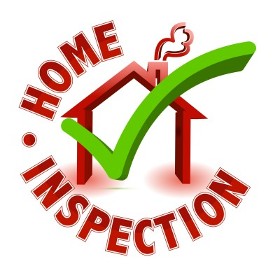
Buying a home is one of the most stressful purchases most people are ever likely to make. The process of having a home inspected can cause stress levels to spike. The inspector may miss something and leave you with a problem home that costs thousands to put right. Here is a five-step plan for breezing through the inspection process prior to any home purchase.
Step #1. Do Your Own Inspection
Most of the stress of having a home inspected is that the inspector may miss something serious. Instead of worrying about this, take matters into your own hands and inspect the property yourself. Simply walk around the home you intend to purchase and check for signs of damp, mold, cracks and other irregular features. Home inspections are purely visual, meaning that no destructive testing is carried out. Therefore, you will see exactly what the inspector will see. Write down your findings or concerns.
Step #2. Hire A Registered Home Inspector
In Texas, home inspectors are part of a regulated industry so finding a registered inspect will help reduce your stress levels. Registered inspectors have a standardized list of things they will check for so you don’t have to worry about them missing anything. Choosing a registered home inspector will reduce your stress level by allaying any concerns that they may miss potential problems.
Step #3. Attend The Home Inspection
Stress levels can quickly rise if you leave the inspection to the inspector, even if they are registered. Many inspectors actively encourage people to join them on the inspection. Most inspections take around two or three hours and during this time you can share any concerns you had when you conducted your own inspection. This is a great opportunity to learn about the home you plan to buy and receive valuable advice how what type of maintenance will likely be involved in the future.
Step #4. Be Proactive
Many homebuyers assume that inspections are comprehensive and that no further work or testing is required. In fact, if you read the contract you will discover that many things are not included. These include mold testing, electrical testing and even testing for pests. Inspections are visual so inspectors will only look for visible signs of damp or pest damage. Beat stress by being proactive and acting upon the advice of the inspector. This may involve paying for additional mold or pest inspections, depending on the findings of the report.
Step #5. Get A Second Opinion
Fear that an inspector may have missed something could be keeping you up at night. The best way to combat this type of stress is to pay for a second opinion. Looking again at the home inspection contract, you will see that inspectors cover themselves legally against any repercussions. The results of an inspection are only the opinion of the inspector and apply to a specific time frame. Therefore, you can develop a fuller picture of a home by inviting other professionals to examine certain areas. Pest control firms usually provide free inspections, for example, and this can help reduce your worry about the inspector having missed critical pest damage.
Conclusion
Finding the right company for your home inspection is half the battle and can make the entire process almost stress-free. Despite this, the process of having a home inspected is still stressful. Follow this five-step guide to ensure that you buy the right home without the stress. This guide should help you beat stress and stop you from worrying about the condition of your home before you complete the sale. Let us know your tips for beating stress in the comments below! |
|
7/15/14 |
The Top 5 Home Inspection Mistakes To Avoid Making In Arlington |

Paying for a home inspection is an essential part of the home buying process. If you are planning to buy a home in Arlington, you may be making mistakes that could sink your purchase or lead you to buy a dud home. To be sure that you are gearing yourself towards success, here are the top five home inspection mistakes people make. How many are you guilty of making?
Mistake #5. Hiring An Unregistered Inspector
Home inspections are a licensed industry in Texas and inspectors should be registered with the local government. This guarantees that they are offering a standardized service for a fair price. Hiring an unregistered inspector can prove to be a costly mistake as they may over charge or miss certain problems during the inspection process.
Mistake #4. Going Cheap
A decent home inspection in Arlington could cost upwards of $500. As a buyer, you may be stretching yourself financially to make the purchase and consider hiring a cheap inspector. This can prove to be a costly mistake. If you save $300 hiring a cheap inspector yet they miss a termite infestation costing $40,000 to remedy, where are the savings? All home sales contracts have a contingency sum for repairs and a clause allowing the buying to pull out of the sale if a major undisclosed fault is uncovered. Home inspectors provide a valuable service and often recoup their cost so there is never any excuse for going cheap.
Mistake #3. Leaving It Up To The Professional
A registered home inspector will give you an in-depth look at the home you plan to buy. However, that doesn’t mean you should leave everything up to them. Prior to the inspection, you can inspect the property yourself. Write down your findings and discuss them with the inspector. Not doing this can be a huge mistake.
Mistake #2. Staying Away From The Inspection
Most inspectors encourage people to attend the inspection, yet statistically, few homeowners do. Staying away from the inspection is a mistake you must avoid making. You should always join the inspector as they conduct their work and share your comments or observations of the home. Inspectors act as educators to ensure that the would-be home buyer has a clear understanding of the home they are about to buy.
Mistake #1. Ignoring Good Advice
Given the historically high number of foreclosed homes coming onto the market in Arlington, substandard inspections are common. Home inspectors cover themselves very well against any legal repercussions. The inspection contract clearly states that the inspections are purely visual and that no destructive testing is carried out. This can lead to situations where buyers purchase homes that have been given the all clear only to discover major pest infestations or widespread rot. It these conditions were hidden, there is no recourse to sue the inspector. If an inspector flags up a concern, always act on this advice. This may mean paying extra for a pest inspection, a mold test or an electrical resistance test, just to be on the safe side.
Conclusion
These five mistakes are the most common mistakes that home buyers make in Arlington. Now you know what they are, you can avoid making them and ensure that your home purchase goes smoothly. To recap, you should always hire a registered home inspector. You should always pay a reasonable sum for the inspection. You should conduct your own inspection, attend the inspection and then act upon this advice. Avoiding these five mistakes doesn’t necessarily cost more money. For example, a pest control company would give an inspection for free if your home inspector raised a concern about pest damage. |
|
7/15/14 |
How To Make Home Buyers Hate Your Arlington Home |
 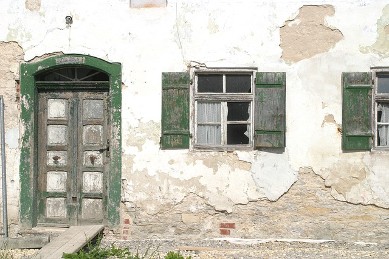
Are you wondering why your Arlington home isn’t selling? By looking at the top five things that home buyers hate to see outside your home, you can work out whether you need to make improvements. Here are five things you’d have to do for buyers to hate your home.
#5. Don’t Do The Gardening
If buyers can’t see your home for the grass, they are guaranteed to give it a pass. Leaving untrimmed tree branches for visitors to duck under is a sure-fire way of keeping your home on the market unsold. In Texas, unkempt yards are a definite no-no for home sellers keen to shift their home. Have a critical look at your yard and consider how potential buyers might receive it. To avoid this mistake, tidy up your yard to present the right impression.
#4. Paint Your Home In Garish Colors
Just because you love key lime green doesn’t mean that painting your doors and window frames in that color will attract buyers. In fact, painting your home in garish colors is one of the best ways of turning off potential buyers. Stick to neutral colors if you want to sell your home in record time.
#3. Create Lavish Landscaping Features
According to the Texas Department of Housing and Community Affairs, buyers who qualified for the ‘My First Texas Home’ program were so stretched financially that they had no spare cash for maintaining lavish landscaped features. If you want buyers to hate your home, installing expensive landscaping features is one of the best moves you can make. Extravagant in-ground swimming pools have eye-wateringly high maintenance costs that most buyers don’t want. Added to that are the safety concerns that parents have about young kids being around pools.
#2. Start New Constructions
Given that home buyers are already shelling out a huge amount for the deposit, the last thing they want to see is new construction work on the property. According to one firm offering land surveys in Houston, new constructions usually mean that buyers have to pay for a new land survey instead of using the survey from the seller. Buyers will not trust that the existing land survey is still accurate. The construction could have breeched planning permits or infringed boundary lines. If you want to sell your home, starting new construction work should not be on your agenda.
#1. Don’t Know Anything About Your Home
Nothing sends buyers running for the hills quite like a homeowner who knows nothing about their property. If you want buyers to hate your home, not knowing anything about it is a good start. To avoid this mistake, consider paying for your own home inspection. Buyers will still commission their own home inspection but the selling process will go much smoother if you have already had your home inspected. Knowing the condition of your home is a great way to develop trust between you and buyer.
Conclusion
So, there you go – five sure-fire ways to make buyers hate your Arlington home. Now you know the mistakes to avoid, you may have a clearer idea of why your home isn’t selling. Astonishingly, many buyers make more than one of the mistakes listed above. They leave their yard cluttered, their home painted in funky colors and they know nothing about the condition of their home. The process of de-cluttering a home is known as ‘home staging’. You should decorate your home in neutral colors and consider moving your personal possessions into self-storage. This helps buyers imagine themselves living in the home. Paying for a seller’s home inspection is a great way to know the state of your home and list it with confidence. |
|
7/15/14 |
The Top 3 Home Inspection Myths Arlington Home Buyers Love To Believe |
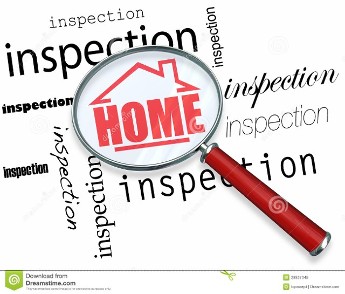
Buying a home is a serious investment and a home inspection is really the only way for buyers to know exactly what they are buying. Join us as we sift through the fine print on home inspection contracts and separate fact from fiction. Here are the top three home inspection myths that home buyers in Arlington love to believe. How many will you admit to having fallen for?
Myth #1. Passed Homes Are Guaranteed Pest Free
The Truth: Many home buyers believe that if a home passes its inspection, it must be pest free. In fact, many buyers all over Texas have purchased homes only to later discover pest damage. How is this possible? Well, according to the National Association Of Home Inspectors (NAHI), home inspectors do inspect for signs of pest damage and should spot signs. The problem is that, as the inspection contract clearly states, inspections are purely visual. Therefore, inspectors will only look for visual signs of pests and will carry out no destructive testing. This means that they will not pull up flooring to look for termite damage on the joists, for example. Prudent buyers know that pest infestations can cost thousands of dollars to rectify. Therefore, paying for an additional pest inspection, or asking a local pest control company to do this, makes good financial sense.
Myth #2. Passed Homes Are Mold Free
The Truth: There is a grain of truth to this myth as home inspectors do check for conditions that may indicate the presence of mold. As with the first myth, this misunderstanding feeds off home buyers’ ignorance about what a home inspection can and cannot do. As no destructive testing is carried out, there are many areas of the home such as the crawlspaces and attic spaces that will never be seen by the inspector. While inspectors will check for visual signs of mold such as spores, they will not move insulation or rip out walls to check for mold. Almost all home inspectors in Arlington offer mold testing as an additional service. If the basic home inspection hints at the presence of mold, the home buyer will need to pay extra for air samples to be collected and sent to a third-party laboratory for testing. Some inspectors do use infrared equipment to detect differences in temperature behind immovable objects such as internal walls and crawlspaces. This is a non-destructive way of detecting possible areas of m
oisture and may indicate that mold is present.
Myth #3. Passed Homes Have Leak-Free Roofs
The Truth: While all home inspectors should access roofs and look for signs of defects on the roof coverings, just because a home passes its inspection doesn’t mean that the roof is leak-free. Inspectors are generalists and many will not venture onto a roof. Some inspectors simply assess the roof from ground level using a pair of binoculars. Inspectors commonly look for signs of roof defects, recent repairs, and neglected areas that may cause leaks. This is in no way comparable to the inspection that a roofing firm would carry out. A home inspection report may suggest that further checks are necessary. Prudent buyers will understand the importance of this and pay for a more comprehensive test.
Conclusion
How many of these myths did you believe? Falling for any of these myths can leave you buying a home will serious defects and faults. Our advice is to always read the inspection contract thoroughly and understand exactly what the inspection will and will not cover before you agree to it. Ask the home inspector to explain any wording or clauses that you don’t understand. |
|
8/25/14 |
How A Home Inspection Can Save You Money |
When buying a home, you need to think about ways to ensure that you make the best investment. Knowing the real condition of the home that you intend to buy is one of the most important things that you can do. Many buyers have spent a huge amount of money on a home, only to realize that it is in a poor state. Unless you want to embark on renovations the moment you move into your new home, it pays to get professional inspection. If like many people you are wondering why you need to get a home inspection, the simple reason is that it can save you money!
Know the condition of the house


A professional inspection can mean the difference between making a smart investment and sinking your money into a pit. The home inspector is not there to tell you whether the house is worth the price, but will give you details on the home's condition. This information is very valuable because you can identify any issues beforehand, which can help to save you money in the future. You can know what you are getting when you buy the home and you do not have to be caught by surprise when you move in.
Negotiate for a lower price
If the inspection identifies issues that need to be fixed, you are in a position to negotiate for a lower price. Having a checklist with the cost of the repairs can give you grounds for re-negotiating the price. This means that it is very important to get the inspection before signing the contract. The seller is more likely to consider your demands when you have an inspection report. A professional home inspector is impartial and is only interested in giving the condition of the home.
Avoid costly financing delays
A home inspection can help you to avoid financing delays that can end up being costly. When applying for financing, you need to know the value of the home that you are planning to buy. Any delays in determining the value can delay the loan application process. It is important to have all your documents ready when you decide to buy a home. You can avoid buying a home that will require major investments that will affect your financing down the line and you will get valuable peace of mind.
Identify things that need replacement
The home inspector can inform you about the life expectancy of essential fixtures such as the plumbing system, the roof, the heater and other features. Having this information will help you to plan accordingly and you can decide whether the purchase is a good one. You can make financial arrangements for items that need to be fixed or replaced. This is a great way to save money because you will not have to wait to buy the fixtures in an emergency and you have time to research your options.
You can get affordable inspection
Home inspection does not have to be expensive. Most people who are wary about getting the inspection assume that it must be expensive. The truth is that you can get the best good quality inspection without spending much money. It is, however, important to make sure that you deal with licensed professionals. Dealing with a reputable firm will help to ensure that all the parties recognize the inspection results.
If you are selling your home, a home inspection will help you to identify any problems that you need to fix before listing the home. Do not wait to be surprised by the buyer's inspection as this can send your asking price down. When you know what needs to be fixed, you can do it prudently, which means that you do not have to settle for the most expensive repair quotes. You can even fix the issues yourself if you have DIY enthusiasm, making huge savings along the way. |
|
8/25/14 |
Selling Your Home | Do Home Inspectors Always Unearth Problems? |
 
When you decide to sell your home, it is a great idea to be prepared so that you can get your asking price. Before you list the home in the market, make sure that it is in the best condition. Remember that buyers are very particular about what they want and you should prepare your home the best way that you can. You also need to get a professional inspection listing. When you do so, you should be prepared to receive a report that will recommend several fixes.
Will the inspector find something wrong?
Many sellers hesitate when it comes to hiring an inspector because they are worried about what the inspection will unearth. The fact is that regardless of all your preparation, the inspector is likely to find something wrong, but the good news is that most of the time the fixes are easy and inexpensive. Your fear should not prevent you from getting the inspection because you should remember that the buyer would also get an inspection. Discovering major deficiencies during the sale process can kill the deal.
An inspection is in your best interest
A pre-listing home inspection is in your best interest if you want to sell your home fast. When you pay for an inspection, you can ensure that your home is ready for the market. Prepare for the inspection by carrying out any repairs that you can. Know exactly what the home needs before you start looking for a buyer. This can save you a lot of stress. Having your own inspection will help you to deal with obvious issues and you can address any problems that can potentially lower the sale price.
Disclosing information to buyers
One major reason why sellers do not get pre-listing inspections is that it obligates them to disclose any issues to the buyers. Many sellers also feel that they do not want to spend the money on an inspection when the buyer will want to bring in his own inspector. While this might seem like a sensible thought, the fact is that your own inspection will help you to identify and deal with issues before you get to the negotiation stage. You are more confident about your asking price when you know the condition.
What the inspection should entail
It is important to have a thorough inspection as a seller, and this means inspecting everything from the floor to the ceiling. Checking everywhere for signs of water damage is important. Check the door handles, window sashes, faucets and other fixtures. When you price your house from a knowledge point of view, the buyer will not have much room to sway you. A few simple fixes can give you the confidence that you need to list your home and get the asking price.
Preparing for the inspection
Get ready for the inspection by finding out what the inspector will be looking for. The inspection usually covers the electrical and plumbing systems, the heating and cooling systems, and signs of water damage, structural problems and signs of termite infestations, mold or leaks. Inspectors will often look at the results of any DIY projects you might have embarked on. They will inspect the home for safety and this includes any outdoor areas like decks.
Pay attention to all the details and come up with a plan on how you intend to deal with any issues raised. Even after preparing the home for the inspection, you should expect some issues to surface. This means that the buyer is likely to present you with a list of things to do. Remember that buyers have options and any expensive repair issues are likely to put off buyers.
|
|
8/25/14 |
Using Home Inspection To Back Up Your Property Purchase Negotiation |

The home inspection is a very important stage in the home purchase process. It is important to hire an independent inspector as a buyer, who can give you the opportunity to identify any potential defect and problem in the home. The inspection will help you to acknowledge the information and you can come to the best decision on how to approach that property for sale. There are some keys to successful negotiation out of a real estate deal and they can help to ensure that all parties are satisfied. The home buying process can be emotionally charged for both sides so a win-win situation is possible if both parties are willing to compromise.
No perfect home
Most first-time homebuyers assume that they will be getting a perfect home and they expect the seller to fix every issue. This, however, is never the case, there is no perfect home and there will always be issues even with new constructions. Many buyers use the inspection report to present the seller with a list of everything that needs to be fixed. This is a natural reaction when you consider the amount of money you are spending but demanding that the seller fix all the issues may not be the best approach.
Every home has some issues and while some may require immediate attention, there are those that are part of ongoing maintenance. It is important to evaluate the asking price bearing in mind the severity of the problems and the age of the home. Considering all the factors will help you to come up with the best negotiation strategy. In most cases, sellers of older homes do not fix everything and they often revert to the negotiated discounted price. Every seller is different and it helps to assess each situation.
The problems are reflected in the price
In some cases, the problems that come up during the inspection are priced into the sale. Many times, the seller will indicate that the listed price is for the "as-is" condition. The seller will say upfront that the price takes into account the repairs that are required. Think about the price and determine if it is fair for the home in its current condition. If the inspection highlights known issues, you can move forward. The problem will come in if the inspection unearths new "unknown" issues. You need to negotiate for these.
Focusing on the major issues
It is important to focus on major items that the inspection report brings out. Nitpicking on small items can cause you to miss a great deal. When you receive the inspection report, look at the list and identify those issues that fall under ongoing maintenance. Remember that the seller may not be willing to fix every item. Focus on issues that require significant financial investment to repair. Think about the estimated repair cost when making the decision.
Dealing with minor issues
If the inspection only finds minor issues, you need to determine how you want to approach the negotiations. This usually means that the home is generally in great condition and whiles it is not wrong to ask the issues to be fixed, do not allow this to become a deal breaker. Do not be hung up on minor repairs but on the other hand, you should try to get out of making tedious repairs and you can ask the seller to fix the items.
It is important to take on the important repairs yourself so that you can be sure that the job is done well. Some of the major repairs can be costly and time-consuming and leaving it to the seller can result in haphazard or poor workmanship as the seller tries to get the job done cheaply and quickly. In this type of scenario, ask for credit on the purchase price or make sure that you hire your own contractor to carry out the repairs. |
|
8/25/14 |
Putting A Winning Bid On Your Dream Home |

The home buying process can be long and tedious but when you finally get your dream home, it will be worth it. Before making an offer on a home, make sure that you do some research so that you can make a smart investment. You need to make sure that you buy a home that is in the best condition. Unless you are planning to tear down the house to build a new one, you should get a home inspection so that you know the actual condition of the home. Following are important steps when making an offer.
The property purchase contract
You need to consult your real estate agent and determine what your offer price should be. Having a figure to work with will help you in your negotiation. After you come up with the offer price, fill out the Purchase Contract form. Remember that depending on your needs, you can make an offer with or without conditions. Some of the conditions will depend on factors like the sale of your current home, the financing approval and a home inspection approval. After receiving the offer, the seller will accept or reject it, or he or she may make a counter-offer.
Receiving a counter offer
If the seller rejects your offer, that will end the transaction. If, on the other hand, the seller makes a counter offer, the negotiations can begin. The seller may make a counter offer that indicates a change in the terms. As the buyer, you are free to accept or reject the counter offer or you can make a new one. During the counter offer, the seller changes some of the terms such as the price, conditions or closing date. This back and forth process can go on until both parties reach an agreement.
Making a deposit on the home
If the seller accepts your offer, you as the buyer will need to make a deposit. This is considered as a sign of your intention to purchase. The deposit amount will usually depend on the price of the home and it is applied to the selling price when the transaction is completed. Your real estate agent can also help you to determine an appropriate deposit amount. Make sure that you have the amount ready before making the offer. This will help to prevent delays and ensure that you do not miss the deal.
Home inspection matters!
Before the purchase process ends, there are some final steps to take. One of the most important steps is getting a professional home inspection. It is important to hire an inspector so that you can find out the real condition of the home. Do not overlook this step and remember that some sellers conceal vital information about the condition of the home. The inspection can identify issues that need to be fixed before the transaction can be completed.
Closing the deal
There are other final steps, they include finalizing the mortgage details with your lender, and buying homeowner’s insurance. It is also important to hire a lawyer so that you can have someone with the necessary experience taking care of the final details. These details include taking care of money transfers and registering you as the new property owner. When all the details have been taken care of, you are ready to close and you become the proud owner of your dream home.
Buying a home is not an easy process especially if you are doing it for the first time. It helps to have experts on your side so that you can avoid making rookie mistakes. Do not hesitate to hire all the professional expertise that you need for this important investment.
|
|
9/12/14 |
3 Major Deal Breakers To Avoid When Buying Your Dream Home
|

When you decide to buy your dream home, you need to make sure that you make the best purchase decision. This is a costly investment and not one that should be made before careful consideration. The last thing you need is to end up with a home that will turn out to be a nightmare. When shopping for your dream home, you are likely to visit plenty of homes before you make the final decision.
In order to find a home that suits your needs, you have to make sure that you get a professional home inspection. This will help you to know what you are getting into before you make the investment. The inspection is likely to bring to light a number of issues that are deal breakers. Following are some of the home problems that should cause you to walk away from the deal.
1. Foundational problems
One of the best reasons to walk away from a home purchase deal is foundational problems. This is a major deal breaker and regardless of how you feel about the home, you should not go ahead with the purchase. Some of the foundational or structural problems include damage in the outer structure and cracks in the walls. If the home looks like it is sinking, it is clear that you have drainage issues or the plot has poor soil. Wall cracks are usually quite easy to spot and they can occur in different parts of the home from the basement to the upper floors.
2. An issue with mold
Mold is a huge problem that is often an indication of a much more serious issue. If there is mold present in the house that you are eying, you can be sure that there is more to the problem. Ventilation issues, especially in the bathroom, flooding, a drainage problem or a leaky roof, can cause mold. While some issues like the ventilation may be easy to fix, a leaky roof can be very costly. Mold can be the result of serious water issues. Faulty plumbing behind walls can contribute to mold problems and you should make sure that you get an explanation for any dampness on the surface.
3. Asbestos problem
Contrary to popular opinion, asbestos is still an issue especially if you are eying an older home. While you are less likely to find asbestos in newer homes, homes that were built decades ago can have this problem. You can avoid living in a home with the carcinogen by making sure that the inspection includes ensuring that the home is asbestos free. Many older buildings have insulation materials containing asbestos. Removing the asbestos can be very costly and you really need to consider if it is wise to make an offer on the home. This is especially important if you plan to make renovations in the future.
There are other warning signs that you should not buy a particular home and they range from electrical issues to a sagging roof, lead paint and flooring problems. While the issues may be an inconvenience, they are often easy to resolve. On the other hand, the three issues above can be very costly and time consuming and they are difficult to resolve. Make sure that you get a full report from the home inspector so that you can make an informed purchase decision.
Knowing the condition of the home before you make the final decision is very important. It can help you in the negotiations and you can get a better price when you factor in the repairs needed. Buying a home that has issues can end up costing you much more than the home's real worth.
|
|
9/12/14 |
Warning Signs During Home Inspection: 3 Common Problems Affecting The Home Structure
|
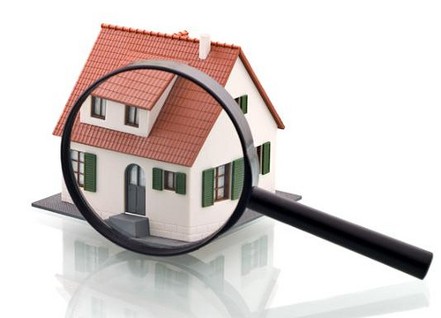 
For your home to be in the best condition, the structural framework needs to be indestructible. As the home's main support, any problems can have serious consequences for the entire home. Fact is that many ‘insignificant’ things can compromise the home structure. One of the major causes of a poor home structure is shoddy workmanship. Other causes include the use of inferior building materials and natural calamities.
It is important to find out the common problems affecting the home structure so that you can know how to identify them and prevent or solve them. Remember that even a home that is well built can experience problems with serious negative consequences. Following are three problems that often cause structural damage.
Rotting wood problems
Another problem that affects building structures is rot. This can be a serious problem when you think about the amount of wood used in the building structure. Rot occurs when a fungus grows inside the wood, affecting the wood cells and this causes the decay that is evident in the wood material. There are temperature and moisture conditions that are ideal for the growth and survival of the fungus. Oxygen is required for fungus to grow. The fungus causes cracks in wood that can eventually destroy the structure.
The best way to keep your structure free from rot is by using rot- resistant wood. Some good options are cedar and cypress, which tend to be less susceptible to the problem of rot. There are also some building techniques such as pressure treating the wood before construction. Moisture is a huge enemy of wood and preventing water entrapment can help to protect your home structure.
Problem of rusty metals
Rust is a problem that occurs any time metal is used in a structure. While some metals can hold up much better to rusting, this problem affects virtually all types of metals. In most cases, rust cannot be completely avoided, but there are steps that can help to lessen the problem. Rust can affect building posts and metal beams, as well as other elements like nails. Some important steps can prevent rust from causing disastrous effects.
Steel tends to rust when it is exposed to water and protecting the structure against moisture is the best way to prevent this common problem. Using metals that are treated with rust inhibitors can help to guard against the problem. It may cost more to choose the coated metals but it is worth it when you consider the effects of rust on the building structure.
Building movement
Roaming or a movement in the building structure is another problem to look out for. While slight movement is not entirely preventable due to gravity, too much movement can have disastrous effects on the home structure. Strong wind can cause the building to shift, as can other natural disasters like hurricanes and earthquakes that can have more harmful effects.
There are several ways to prevent structural roaming and they include the use of shear walls or braced panels to protect the building. Most building codes recommend the use of the panels that can help to protect against the forces. These can help to minimize the damage caused during the disasters and they are usually required when building the exterior walls. Depending on your location, extra bracing can be a good idea to enhance protection.
A thorough home inspection will help you to discover the issues above early enough. This will act as a good basis when you are trying to buy a home. The home inspector will look for any signs of structural damage that may not be obvious and that may be problematic in the future.
|
|
9/12/14 |
Understanding Your Roof And How To Protect its Worth |

While the roof might be one of the most important structures in the home, it is also one of the most overlooked. Many homeowners do not think much about the roof system until there is a problem. Waiting until there is a leak in the roof can cause a lot of structural damage and it is something that you should avoid. The roof is the crown of the home and keeping it in great shape will help to protect your home while increasing the value.
Failing to ensure that your roof remains in the best possible shape can lead to thousands of dollars of damage. To extend the life of your roof, you need to ensure that any repairs are carried out promptly. When buying a home, an inspection of the roof is necessary, as it will give you a good indication of the condition of the entire home. Understanding your roof will help you to make the best decision when it comes to protecting this important structure.
Identify types of roofs
Whether you are building or buying a new home, knowing about the different roof types is a distinct advantage. Roof types fall into two basic categories; flat and sloped roofs, with each category including different roof designs. The degree of sloping will determine how well water drains from the roof. Rainwater can be a huge problem when it comes to the condition of the roof. Water pooling on the roof is a major threat as it causes leaking and deterioration of the roofing material. Think about the amount of rain experienced in the area when choosing a roof design.
Choosing roof materials
There are many possibilities when it comes to choosing roofing materials and you can choose any material that suits your budget and your overall needs. When it comes to roofing materials, asphalt is one of the most common choices today due to its durability and cost effectiveness. There are other popular options available and they include concrete, wooden shingles, clay tiles, metal roofing and fiber cement shingles. The different roofing materials come with different issues and care instructions and knowing how to take care of your roof type will come in handy.
Replacing your roofing
If you are about to buy a home, you need to determine if the roof is in good condition. A home inspection will identify any issues and you can determine if the home is worth buying. Roofing repairs can be very costly and you need to establish the estimated cost of repairs before you make the final decision. If you are experiencing leaks in your roof, it may be time to consider roof replacement. If you have an old home and the roof is showing signs of damage or decay, replacement is a good idea.
Protecting your roof
The roof is vulnerable to damage owing to the fact that it is exposed to the elements. The weather in your area will have a huge effect on your roof's lifespan. Sunlight poses a huge threat to roofing materials such as asphalt shingles. This means that the slope of the roof will determine the protection factor.
Your home receives better protection from harsh sunrays if it has a sizeable slope. If your home has a roof that has a lower rise, you must be extra careful to get your roof examined regularly. There are some external warning signs to look out for and they include missing, broken or curling shingles.
There are several signs that can indicate a problem in your roof and they include the external signs, as well as internal signs like spots in the ceiling or leaks. It is important to get professional inspection to find out if your roof is in need of repair or replacement. Getting a roof specific inspection is very beneficial and it can help you to save money in the end.
|
|
9/12/14 |
Simple Ways To Maximize Your Renovation Investment
|
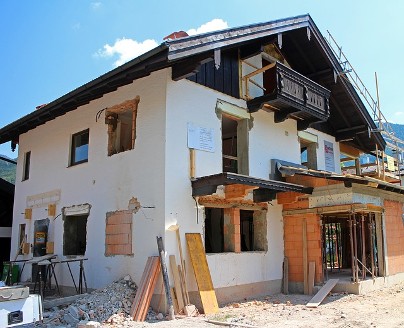
One of the best ways to update your home and infuse new life into it is by carrying out renovations. Your old home can look new, which will also help to improve its value. When planning the renovation, it is a good idea to think about the best way to maximize your money. You need to determine the projects that will improve the home's value and comfort without causing a huge financial strain. If carried out correctly, your home renovation can take advantage of your home's potential to get the best results.
Home renovation does not have to be stressful or cost you an arm and a leg. You can carry out the work cost effectively allowing you to get the most from the process. Following are some of the ways that you can ensure that you get the most from the renovation. Stretch your dollars by planning the renovation before you start.
Consider the current potential
When planning the renovation, think about your home's current potential. This is the best way to get the results that you want cost effectively. Look at the current condition of your home and determine all the strong points. Remember that this is a renovation and you are not completely rebuilding the home. Consider projects that can have the most effect without costing too much. The simple act of removing a connecting wall can have a huge effect by creating more space while also letting in more light. Removing carpeting to revel beautiful hardwood floors can work like magic to enhance the appearance.
Think about the investment
When you think about the renovation as an investment in your home, you can determine the best way to spend your money. Remember that the work you embark on can have a huge effect when it is time to sell your home. Think about the current market trends and the changes that are specific to your home. Some renovation projects like the kitchen and bathroom are beneficial everywhere but adding a deck will improve the value of a home in some locations but not in others. Think about the return on your investment when planning the renovations or choosing what to upgrade.
Space out the renovations
When carrying out the renovations, you can avoid financial stress by pacing yourself. You can avoid spending too much energy to accomplish your needs by working in stages. This will not only help to reduce the financial load, you can also determine the projects that you need immediately and those that you do not need. Planning is the key when you decide to work in stages and you should create a list of all the work you would like to do so that you can schedule the tasks effectively. Start with the projects that will ensure that your home continues to function effectively.
Small yet effective changes
It is important to know that small renovations can lead to huge improvements. You do not have to make major changes to update your home. Sometimes, something as simple as changing you flooring or a new coat of paint can make a huge difference. Replacing your furniture can make your home feel and look new. The best thing about the small renovations is that you can carry out the tasks yourself. This means that you do not have to spend a huge amount of money on hiring professionals. With the wide range of resources available, you can perform the tasks with professional results.
When you decide to renovate your home, it is a good idea to get home inspection so that you know what you are dealing with. Also, attempting to carry out complicated renovations yourself can end up costing you more in the end. If you need any structural work done, make sure that you hire a quality contractor so that you can get the best results after learning about the problems through a home inspection.
|
|
10/10/14 |
You Can Gain The Upper Hand Through A Seller's Home Inspection! |
Also referred to as pre-listing inspections, seller’s home inspections are primarily used in only a small percentage of home sales. These are simply home inspections that have been commissioned and paid for by the seller and not the buyer. They have grown in popularity with many property sellers and buyers due to the many noticeable benefits they give to all involved. While a majority of people fail to understand the true value of knowing their property pre-listing, those who invest in a pre-listing inspection sooner than later realize a great return on their investment. Here are some pre-listing home inspection merits in a summary
To the buyer’s market
 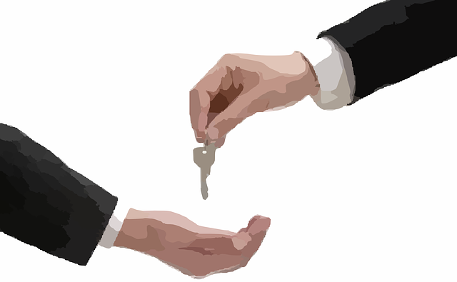
In weak home sales markets, there are often more properties available for sale than buyers. Fewer buyers mean that the seller is at a disadvantage where property pricing is concerned as the market dictates the price. The buyer in this case often makes use of home inspections not only to verify the condition of the home, but also to negotiate the price down to cover improvement and repair costs. These costs in most cases are overestimated. Sometimes the buyer also uses the conditions to back out of the deal. This is not good for the seller. Either way, a buyer who finds out about repairs that need to be done, whether major or minor, gains leverage over the seller in price negotiation.
In a home market such as this, a pre-listing home inspection can also help the seller sell his property for more money and fast track the deal. Not only this, the inspection helps the selling agent to avoid unnecessary surprises at the eleventh hour. The seller is given sufficient time to decide what areas best improve the property’s appeal, rather than in the middle of a stressful negotiation. It also helps provide an objective opinion to support realistic price settings. Through this type of a home inspection, recommendations on which repairs to do to improve the property’s appeal is possible and thus being able to substantiate a higher asking price.
To the seller’s market
While it seems understandable to use a pre-listing inspection when buying a property, it is also beneficial in the sellers market as well. In hot property markets, pre-listing home inspections are employed to encourage numerous offers since any objections that a buyer might have are all removed. On seeing the report for the first time, any doubt a buyer might have about a property’s condition is done away with. The buyer is therefore in a better mindset than in cases where no inspection report is available. The extent of doubt removal in most cases depends on the name, reputation and trust behind a pre-listing home inspection company. And because there is no doubt as to the condition of the property, more bidders and bidding is encouraged.
It is good to note that pre-listing inspections are not the answer in every property selling and buying case. However, they are an effective tool that can help sell a property faster and at a better price. The resale price of properties on sale is significantly increased. A well done pre-listing home inspection also prepares the vendor for selling and buying negotiations. In simple terms, it gives the selling agent more advantage when negotiating for a better deal.
Real return on investment for the seller
Buyers ask for huge price reductions for every perceived repair on a property they want are interested in. Let’s say there is a termite issue, a buyer will fix repair costs in a way to suit his budget, thereby reducing the property’s buying price. A seller could avoid all this by paying to fix the issues himself. This in turn will add to his bottom line, and thus the importance of a pre-listing home inspection.
|
|
10/10/14 |
A Quality Home Inspection Service Is Worth Your Money And Time! |

Though they seem like one more expense when buying properties, professionally done home inspections are worth your money and time in the long run. Here are some reasons for having a professional home inspection service before buying or even selling a home.
For monetary security
A quality home inspection service reveals critical details about the state of a property and its systems. A person can not tell when or if a roof needs a repair by simply looking at it or the house or even that there is mould in the basement or that there are cracks in the foundation. We all have heard accounts of unsuspecting people purchasing properties only to find out later that the basement is leaky and that it is going to cost them huge amounts of money to have it fixed. This is all very inconveniencing and not forgetting the health implications.
By deciding to have the property inspected, the seller is able to familiarize himself with all elements of his home. He is also able to make out what requires to be instantly fixed and the cost of the maintenance. All major areas to be maintained or repaired can be easily identified this way. A home inspection is an important process for financial management and budgeting requirements. And although most home buyers leave some wiggling space in their budgets, very few people can afford an additional and quite unanticipated expense in a given year.
For helping to discover what to spend on and what not to
As stated above, home inspectors ensure that property sellers or buyers are made aware of what maintenance, repairs and costs their home calls for now and in the future. He is able to give true estimates of key systems in a home such as cooling, heating, plumbing, and many others. A good inspector is able to make a diagnosis of the current condition of the structure itself. Remember that all elements in a house have a “shelf-life”. Knowing when the components need to be replaced not only can help a homeowner make crucial financial decisions, but also in the determination of the type of insurance coverage to go for. It can also help him easily determine the kinds of warranties to consider.
Most insurance companies won’t insure a property if not fully inspected. And this can only be proved with a home inspection certification. If conditions such as a property being situated in windstorm areas are discovered, then the most effective way of reducing on the premiums is having a wind alleviation inspection. Note also that getting insurance coverage for homes that are older than 25 years or more can prove difficult as most service providers are unenthusiastic on issuance of policies on them.
A good home inspector helps property owners to understand what improvement activities need to be done or postponed in order to prevent or reduce the current or future costs. Cleaning the eaves troughs out on an annually basis and diverting water from the property for example can add protection to it and thus help to reduce the premiums on it.
For your personal safety and health
By having a properly done home inspection, your personal and financial safety is assured. How so, you may ask. A correctly carried out inspection can help in detection of safety issues such as carbon monoxide, radon, mold and other environmental hazards that all properties need to be tested for. So make sure that your purchase agreement states that should such hazards be detected, you have an option to cancel the offer to buy.
The inspector ensures that a property owner is aware of major improvement activities that can be completed without a permit. Items which are not up to code are indentified though a well carried out home inspection. It is good to remember that even new homes with systems that are not installed to code will one day become a major issue to fix for the homeowner should he purchase the home. |
|
10/10/14 |
How Do You Get The Most Out Of A Home Inspection? |
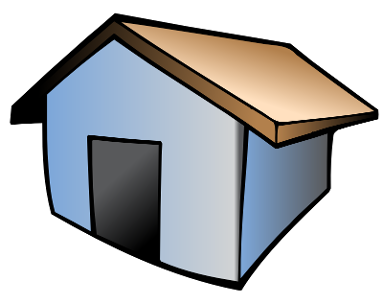
A well done home inspection is a valuable tool for both the homeowners and homebuyers alike, so it is important to be physically present during the examination process. The test is designed to uncover potential issues and hidden defects in a home. These problems are mostly not evident to the average person. With a home inspection report, a buyer is able to know if or not he is making the right investment decision. Here is how to get the most out of a home inspection.
Be present during the process
A lot of people surprisingly don’t attend a home inspection they order and pay for due to one reason or another. As a result, the gains are significantly less than if they walked through the process with their chosen inspector. For this reason, it is very important to attend a home inspection process in person, particularly for homes that have not yet been occupied because their structures and systems are quite unfamiliar. By attending the examination, the inspector is able to point out crucial details and issues as well as give the seller or buyer an instant expert opinion on the same.
While it is true that at the conclusion of an inspection a buyer or seller will receive or be given a report, it is almost incomparable to the value of having the inspector point out the issues in person. By being present, the buyer or seller is able to visibly take account of what the inspector notes and observes during the inspection process.
By knowing what to expect well in advance
In addition to standard home inspections, there are a number of other different specialty services that are also offered by home inspectors. By knowing more about a home on sale and the risks involved in the purchase, a buyer is able to order an inspection that uniquely meets his personal requirements. For example, a buyer may wish to have the home inspected for things such as asbestos if the property was built before the 1990s or even have the spa or pool inspected if one is included in the sale.
So it is important to keep abreast of the kinds of things that should be inspected before contracting a home inspector for the eventual inspection. By being aware of these things, not only is the buyer or seller able to better prepare the home for the inspection, but also inform the inspector of all the key features that need to be inspected.
By being well prepared
For people having their homes inspected for sale, it is important to make sure that all elements in it are easily accessible by the inspector during the inspection. Remember that an inspector is not required to move things that are blocking the areas he needs to access during the examination. This means that if there are items that need to be inspected but that are obstructed, then they won’t be examined as is required. Any systems not operational at the time of inspection also are excluded in the examination. So make sure that all main systems of your home that need to be inspected are functional at the time of examination.
By reading the report carefully
To most people, reading a home inspection report is an obvious thing after the process. However, you would be surprised by the number of individuals who never get around to reading theirs once they receive it. By reading the report, a person is able to discover all issues uncovered in his home and problems that it is likely to incur in future.
As the main objective of the report is to describe and explain, it should include detailed explanations of the methods the inspector used in inspecting the home’s systems. The homeowner is then able to have an accurate listing of the status of all key systems in his home. What better handbook can anyone get for his home? Get yours today!
|
|
10/10/14 |
What Does Condo Inspection Entail? |
Affordable, easy to maintain, convenient and compact, these are just but a few reasons why some people opt for the simplicity of condo living. So whether it is an older couple looking to downsize to a residence that better suit their needs, or a young professional looking into a home ownership deal, the reasons and options for choosing condos are endless. But whichever the reasons, something that remains reasonably constant is that condos are sizeable investments and worth protecting.
The condo purchase process

It is recommended that before putting the final purchase signature to have the property thoroughly inspected as a well carried out inspection is worth both the buyer’s time and money in the long run. But what is this inspection and what is included in it? Well, this is a kind of an inspection that is ordered by either a buyer or a seller, and that involves a walk through check on the interior systems of the whole unit. In simple terms, it is a visual interior inspection of the following systems in a condo:
• Electrical system
• Ductwork and Vents
• Plumbing system (including bathtubs, faucets , showers and toilets)
• Heating system
• All interior structural elements, including walls, doors, windows, floors, and the likes
Observations such as issues with air filters, caulking, doors, grout, hardware, etc, and recommendations are then made following the inspection. Some inspectors may also check the appliances in a condo during the inspection process, including re-call checks. This lets the buyer to know if any of the appliances have been re-called. It is however important to note that appliances inspection is not mandatory, meaning that some inspectors might include it in their examination while others not.
Is a condo inspection the same as a home inspection?
An inspection in a condo is basically less costly and exhaustive than one done in a home. Although there are fewer systems in a condo unit, a buyer or seller should not devalue the benefits of having a qualified home inspector examine the features in it. Remember that the cost of repairing these features once out of warranty in most cases far exceed the price tag on an inspection.
Inclusions in a condo inspection
The following areas are not inspected during a condo inspection.
1. General areas such as hallways, amenities, exteriors, roof, lobby, stairwells and so forth.
2. Fire protection items, sprinkler system included.
3. Concealed things such as plumbing and electrical system.
4. If the property’s mechanical system is in “cooling mode”, then the heating mode can’t be tested.
5. Appliances, though some inspectors do include them in the examination.
6. Lighting, receptacles and wiring system is tested, but not comprehensively.
Benefits of condo home inspections
One of the main benefits of having a condo inspection is being able to sort out issues a buyer might not be aware of with the builder while still under warranty. In case of a resale condo, the buyer sometimes is able to renegotiate the price downwards based on the condition of the property. For example, if there is a poor installation of some items in the condo, the buyer might be able to ask for a price reduction based on them. The value of having a third party to come in and draw attention to the deficiencies is immeasurable for the buyer.
In conclusion, home inspection experts recommend condo inspections no matter the property’s age. If for example a real estate agent or a buyer has some concerns about the unit, then the examination can be used to help ease anxiety for all involved in the deal, particularly during the warranty period.
|
|
10/25/14 |
Why Professional Home
Inspection Is A Must When You Buy A Residential Property |
When you buy a new home, you usually decide on buying the property due to its location, its appearance or its most beautiful layout. However, you must remember that there is a lot more than this to be looked at. Only a professional home inspector with a critical eye for details can do a proper inspection and tell you about the loop holes that could make you spend thousands of dollars after you purchase the property. When you hire such a professional, you will not only save a lot but will also avoid disappointment that could befall on you after you make your purchase.
The professional home inspector will look at the following:
• Repairs required to be carried out immediately and in the long run
• Possible health hazards and safety issues
• Ways to help you avoid expenditure after purchase
• Ways to help you get a better price

Repairs required in the short term and for the long term
When you look at the home you are going to purchase, there are lots of things to look at. Repairs that need to be carried out immediately and a few years later have to be examined in detail. When you hire a professional home inspector, he will walk through all the details and will tell you about the exact condition of the house which a buyer will not be able to look at. He will tell you if the foundation has cracks and if the basement walls are leaking. These are quite a few such aspects to look at. This will enable you to negotiate with the seller and either get the price reduced or get him to pay for the repairs.
Health hazards and safety issues
Homes sometimes pose health hazards to those who live in them. For instance, there are chances that the moulds are growing in the basement walls. Under such situation, the house has to be examined properly. Only a professional home inspector is able to do such inspection and tell you about the hazards involved. When you have this detail with you, either you can cancel the offer to buy the house or you can get the seller to address them.
Avoiding expenses after purchase
Often buyers find that homes are not built according to the federal requirements or modifications have been done which are not legal. In case you buy such a home, you will be compelled to spend lots of money to correct such faults. If not, you will not be able to insure your home. This situation could be avoided by hiring an experienced home inspector.
Helping you get a better price
An inspection report on a home is able to show the seller that the home he is going to sell is not worth the price. Therefore, you can ask for a reduction by convincing the seller about the shortcomings involved with his house. No doubt, this is an ideal way to buy the property you like at a lower price, if the seller does not intend to fix the house issues himself. Even if he fixes the problems and you do not get a lower price, think about the benefits you stand to gain from buying a house that has its problems fixed!
|
|
1/9/15 |
Top 4 Areas Of A Home That Should Be Inspected Before Winter |
You are approaching the last quarter of a year and winter is drawing near. Before you get into a festive mood to welcome Christmas, you have to first complete certain chores. These are no ordinary chores, not about doing the laundry or washing the dishes, but ensuring that your home is thoroughly inspected to prevent expensive problems from arising through the winter.
Every homeowner should understand the importance of protecting their homes as it is an investment as well. There are many aspects of your home that you should inspect, but this article narrows down to the 5 most important ones to save time.
The exterior of your home
Some homes tend to suffer more damages from the winter elements. If your home is one of the aforementioned, don’t worry as there are ways to prep your home’s exterior, such as checking for vulnerable entry points and cracks. If these points are left untouched, there might be water leakage, pests and excess amounts of cold air. The most common areas to check are the:
• Roof
• Foundation
• Doors
• Windows
• Crawl spaces
• Brick masonry
• Decks
To do this, simply light an incense stick and walk around these areas on a cold breezy day. You will easily notice if the smoke is affected by the elements. Quickly seal up any problematic areas and make sure it holds up to instances of thawing and freezing.
Current thickness of your home’s insulation
You might be delighted to know that insulation is not a costly investment and they have great ROI. Most parts of insulation are found in one’s attic and should be at least 12 inches thick. To know whether you require extra insulation, look at your attic’s ceiling joist. Ceiling joists range between 10 to 11 inches. If your area tends to drop below zero degrees Celsius, you should consider adding more insulation as it helps to prevent warm air from getting trapped, which causes ice dams. Choosing the right type of insulation may be trick, thus heading down to a insulation store would be prove to be advantageous.
The chimney
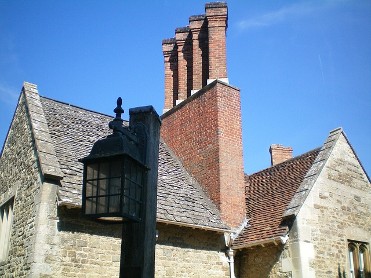
You might have heard of the old saying that you need to sweep your chimney every year. However, that is not exactly accurate. In fact, your chimney should be inspected at the start of each year before use. Ensure that there are no foreign objects such as tennis ball or other obstructive debris stuck inside. You can of course do this yourself, but the best way is to just leave it in the hands of a professional. When your fireplace is not in used, remember to keep the chimney’s damper closed at all times.
Drains and gutters
When water flow in drains and gutters get interrupted, water that backs up will eventually freeze and seep into your home. Fallen leaves are not a major concern at first sight, but that is a common misconception and they have to be cleared as soon as possible. If you have any pipes that get misaligned for any reasons, make sure you fix it so they drive water at least ten feet away from your home.
Sure, home inspections require homeowners to expend a substantial amount of effort but it helps to ensure one’s home retain a high level of ROI. If you do not wish to go through that trouble or lack the skill in conducting a home inspection, feel free to contact us at Ricco Home Inspections.
|
|
3/2/15 |
Why Do You Need A Home's Structure Inspected Before Buying It? |

When you are thinking of buying a home, one of the services you are always encouraged to take advantage of is a home inspection. This gives you a professional view of what the house is like, thus making it much easier to determine whether to buy the home or not. It will also give you an idea of how much you should expect to spend on the home in terms of repairs and renovations.
Most of the time, such an inspection is done on a system by system basis. Using this approach will give you a more holistic view of the true state of the house. One of the parts that you should pay specific attention to is the masonry and general structure of the home.
Why is this important?
The general structure of the home will affect nearly all aspects of ownership. For instance, if there are too many cracks in the foundation, environmental water might leak into the home, leading to the growth of mold and further formation of cracks. In addition to that, the state of the structure also influences the safety profile of the home. Homes that have extensively damaged exteriors tend to be more unstable than the rest, leading to an increased risk of collapse.
What are some of the things that are to be checked?
Some of the issues that need to be addressed when doing such a check include:
• The structural integrity of the masonry. Since it was built, has it reduced its physical characteristics to the point where it will not support the weight of the home? Does this mean that you have to have it replaced?
• The presence of common defects: things such as cracks need to be assessed professionally. Simply filling them might not work. In order to correctly repair such a crack, some of the things that need to be taken into account include its depth and the characteristics of the material it is in.
• Does the home still conform to local standards? In most neighborhoods, buildings are subject to regulated standards. If it turns out that the home you buy is not of the expected quality, you may need to make the repairs at your own cost. This can be very expensive particularly if you had not planned for it.
Getting the most out of such an inspection
In summary, consulting a home inspector before buying a house is critical, and is a cost that definitely makes sense. To ensure that you get the most value for money, some of the tips you can use when getting these services include:
• Only have a home inspected if you are very interested in buying it. This reduces the associated cost, since you won’t have to get it done more than a few times.
• Your inspector should be skilled. Ideally, you should use one who has been in the industry for long enough. This will translate to lower costs and high quality workmanship.
What the home inspector does is making sure that by the time you buy a home, you will be very sure about what you are getting and that you are making a worthy investment. |
|
|
Is It Worth Getting A
Condo Inspected? |
Condos are affordable, easy to maintain and convenient to live in. Due to these reasons, many people prefer to opt for condo living. It does not matter why you are opting for this type of living. For instance, generally the young professionals take it as a stepping stone to home ownership while the older couples love the condos because they feel that they meet their needs in the best possible manner.
The more you explore the reasons, the more surprised you will become because of the endless options condos provide to their dwellers. One thing that can be stated as a fact is that a condo is nothing less a fairly sizeable investment that deserves your attention.
What is a condo inspection?
A condo inspection is a special type of home inspection carried out by professionals on request of home owners or prospective home buyers. It is basically a walk through inspection in which the interior systems of the home are analyzed and evaluated.
What does a condo inspection comprise of?
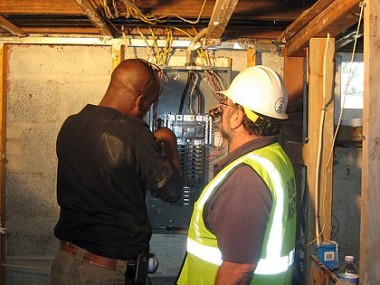
A thorough visual inspection is done on the following:
• Ductwork and vents
• Interior structural elements that include doors, floors, windows etc.
• Plumbing system that may include inspection of showers, bathtubs, toilets and faucets etc. The professionals generally check whether the drainage system is working properly or not.
• Electrical system
• Heating system
Once the professionals examine the condo, they highlight the issues with the hardware, doors, grout, caulking, air filters and etc.
There are some inspectors who also check the appliances and see whether they are in working condition or not. They also get a recall check which will let you know whether any of the appliances in the home have been recalled or not. However, it must be remembered that inspection of the home appliance is not must and the criteria of evaluation may differ from inspector to inspector.
When compared with other types of inspection, it is a fact that condo inspection is less exhaustive and less costly. It is also a fact that there are less means of evaluating a condo but this does not signify that one should not give importance to the home inspection at the time of sale and purchase of condo.
What is omitted in condo inspections?
• Items that are concealed like plumbing and electrical cannot be inspected. This is something which is similar to normal home inspection.
• The areas that are quite common in the condo are also not inspected. This may include amenities, lobby, hallways, stairwells, exterior and roof etc.
• Fire protection items like sprinklers are not evaluated or tested.
• If at the time of inspection, the building’s mechanical system is in ‘cooling mode’ then the inspectors will not be able to test the heating mode or vice versa.
• As mentioned earlier, the appliance checking is not including the in condo inspection, but there are some inspectors that get them checked as well.
• Although receptacles, lighting and wiring are tested but this is not done in a comprehensive manner. This means that only a sample is tested just like in a random home inspection.
As you can see, condo home inspections are carefully carried out by professionals. When you want to find out about problems in your condominium, or when you want to get higher value from selling your condo, a home inspection can always help your cause. Therefore, it is more than worth it!
|
|
4/23/15 |
Have A Home Inspection Done Before Buying That Seemingly Perfect House For Sale! |
A quality home inspection in Arlington is money well spent for any home buyer. At around $250 to $1000, a home inspection may seem an expensive expense in the long list of buying a home. However, there are plenty of positive reasons why this examination is worth every single cent spent on it. Here are the best reasons why you should heed this advice:
Gives the buyer an insight on what or not ought to be spent on
A well carried out home inspection can help a potential homebuyer to know what repairs, costs and maintenance a potential home may immediately require, and over time before its purchase. It can also help him to estimate the age of the major components and systems, for example cooling, heating and plumbing. The inspectors diagnose the structure’s current condition and tell the buyer how long the finishes have been in the home. Note that all components in a home have what is referred to as shelf life. And knowing when these systems and components will need to be replaced can help a buyer make critical budgeting decisions and to determine the type of home insurance guarantees or coverage to consider.
For your personal safety and health
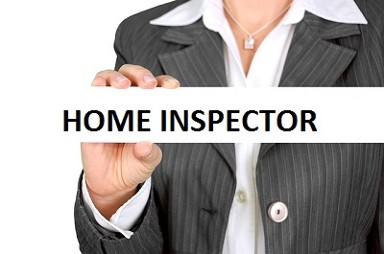
For your own safety and health sake, it is important to have an inspection done before purchasing a dream home. A properly done home inspection can help detect safety concerns such as carbon monoxide, radon, mould and other environmental risks that all homes regardless of whether they are on the market for sale or not should be tested for. Before signing the buying agreement, make sure that it explicitly states that should such risks be detected, you have the option to cancel the offer to purchase.
It offers you some space to wiggle on the price
If a home inspection is carried out on a home you are contemplating to acquire, and a number of serious issues are discovered, then this examination presents you with a chance to back out of the purchase offer amicably. The results of the examination provide you with a chance to renegotiate the price. This way, the expected repairs can then be taken care of by the money you would have otherwise paid for the house if the inspection had not been carried out. The agent you are using should be able to help you negotiate a better, if not a fairer deal.
For your own financial safety
A well done home inspection can reveal in crucial details about the condition of a home on sale and its systems. For example, it will tell if and when a roof requires to be repaired, there is mould in the basement or that there cracks in the foundation. You can’t tell all this by simply looking at a house on sale.
Most of us have heard tales of unsuspecting homebuyers purchasing a home only to find out later on that the basement is leaky and it is going to cost them more than $50 000 to fix. The inconvenience of having a leaky basement fixed and the health implications are too serious to even think about. So, let a home inspector to walk with you through the property and tell you what needs to be fixed before finally signing the purchasing agreement. After all, there are very few people who could afford an extra $50,000 in unexpected home renovation expenses in any given year!
|
|
|
5 Expensive Unpleasant Surprises Only A Home Inspector Can Save You From |
No doubt, a home inspection service in Arlington is an important investment because the clients can rely on the experts’ opinions when making a property decision. When purchasing a house, buyers need to make sure that the house they plan to purchase does not hold any unpleasant and expensive surprises for the future.
Generally, a home inspection service comprise of a thorough check of the mechanical and structural condition of a house from the roof to the foundation. The presence of wood destroying insects and radon gas are checked as well. Once the evaluation is done, the prospective buyer has the right to walk away from the deal if the inspection team gives some alarming signs or negotiate the price with the seller. Following are some of the red flags that home inspection team can unveil and can help the buyer to make the property purchase decision better:
• Presence of termites or some other live-in pests
The house which you have fallen in love with might be adored by the termites too. It is better if you detect the presence of termites as early as possible. The same rule goes for other live-in pests like powder-post beetles. If you actually purchase the house where termites dwell, you will have to look for a solution as soon as possible and then contact a pest control expert to suggest you what precautionary measures are needed. With the help of a home inspector, you would have evaded this kind of problems instantly.
• Problems in drainage
If there is a poor drainage system in the house, it can make the basement wet, and can cause the wooden structure to rot. Furthermore, it paves the way for mold growth as well. These issues usually arise when there are damaged downspouts and gutters or when there is an improper grading at the ground level. Always remember that replacing gutters is quite less expensive than dealing with the destruction due to accumulation of moisture in the house.
• Faulty foundation
Crumbling or even a cracked foundation is a serious problem which must be given proper attention. The repair cost can range from moderate to sky high expensive. Therefore, discuss with the home inspector what he thinks about the condition of the foundation and then take a decision accordingly. Some people are fond of purchasing historic properties. What they forget is that the beautiful detailing in the structures comes with heavy underlying expenses.
• Pervasive mold
If moisture tends to accumulate in the house, mold will definitely grow which can be a threat to human health as well. Sometimes, the reason behind mold growth is improper ventilation in the smaller and more contained spaces like bathrooms. You must think a number of times before you purchase a property where mold is pervasive, as it is a clear sign of long term moisture problems.
• Outdated wiring of the house
It is quite common for the home inspectors to open and inspect the main electrical panel of the house. They will look for the signs of proper grounding, overloaded circuits and the presence of any troublesome spots like aluminum branch circuit wiring. This can be a serious fire hazard and therefore must be given prime attention. A reputable home inspector can easily identify the faults in the electrical system of the house and at times can give an estimate of the repair cost as well. Home buyers will then be able to use this information to decide if they want to proceed with the real estate purchase.
No doubt, a home inspection service in Arlington is an important investment because the clients can rely on the experts’ opinions when making a property decision. When purchasing a house, buyers need to make sure that the house they plan to purchase does not hold any unpleasant and expensive surprises for the future.
Generally, a home inspection service comprise of a thorough check of the mechanical and structural condition of a house from the roof to the foundation. The presence of wood destroying insects and radon gas are checked as well. Once the evaluation is done, the prospective buyer has the right to walk away from the deal if the inspection team gives some alarming signs or negotiate the price with the seller. Following are some of the red flags that home inspection team can unveil and can help the buyer to make the property purchase decision better:
• Presence of termites or some other live-in pests
The house which you have fallen in love with might be adored by the termites too. It is better if you detect the presence of termites as early as possible. The same rule goes for other live-in pests like powder-post beetles. If you actually purchase the house where termites dwell, you will have to look for a solution as soon as possible and then contact a pest control expert to suggest you what precautionary measures are needed. With the help of a home inspector, you would have evaded this kind of problems instantly.
• Problems in drainage
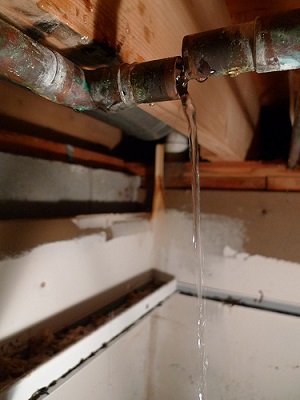
If there is a poor drainage system in the house, it can make the basement wet, and can cause the wooden structure to rot. Furthermore, it paves the way for mold growth as well. These issues usually arise when there are damaged downspouts and gutters or when there is an improper grading at the ground level. Always remember that replacing gutters is quite less expensive than dealing with the destruction due to accumulation of moisture in the house.
• Faulty foundation
Crumbling or even a cracked foundation is a serious problem which must be given proper attention. The repair cost can range from moderate to sky high expensive. Therefore, discuss with the home inspector what he thinks about the condition of the foundation and then take a decision accordingly. Some people are fond of purchasing historic properties. What they forget is that the beautiful detailing in the structures comes with heavy underlying expenses.
• Pervasive mold
If moisture tends to accumulate in the house, mold will definitely grow which can be a threat to human health as well. Sometimes, the reason behind mold growth is improper ventilation in the smaller and more contained spaces like bathrooms. You must think a number of times before you purchase a property where mold is pervasive, as it is a clear sign of long term moisture problems.
• Outdated wiring of the house
It is quite common for the home inspectors to open and inspect the main electrical panel of the house. They will look for the signs of proper grounding, overloaded circuits and the presence of any troublesome spots like aluminum branch circuit wiring. This can be a serious fire hazard and therefore must be given prime attention. A reputable home inspector can easily identify the faults in the electrical system of the house and at times can give an estimate of the repair cost as well. Home buyers will then be able to use this information to decide if they want to proceed with the real estate purchase.
|
|
|
3 Universal Enemies Of A Home Structure |
The main support for your home and everything in it is its structural framework. As such, we all hope that it is strong enough as to be indestructible. Unfortunately, this is often not the case as quite a few seemingly harmless things can work against the structure of a building to compromise it. Inferior workmanship is the leading cause of issues when it comes to buildings framework. There are a number of other factors that also have calamitous outcomes where building structures are concerned. In this regard, here are some three of the commonest issues that affect the structural framework of a home and measures to take so as to avoid or prevent them.
Enemy 1: Rust
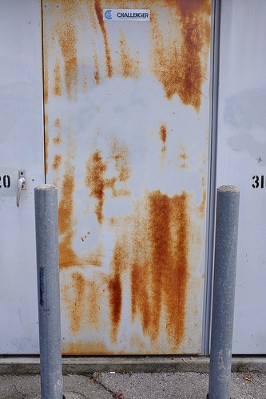
While rusting cannot fully be prevented, there are a number of steps a homeowner can take to stop it from having devastating effects. It affects metal building elements such as nails, beams, posts, etc. Metal building materials such as iron and steel, all rust when exposed to moisture or water. As such, it is prudent to have them protected from being exposed to water and moisture so as to prevent rusting.
Solution: The best way to prevent rusting in metals like steel and iron is to have them treated with a coat of rust inhibitors.
Enemy 2: Roaming
Roaming is the shifting or movement of a building structural framework due to natural phenomenon and elements such as earthquakes, gravity, strong winds, hurricanes, storms, and the likes. This movement though seemingly harmless has disastrous effects on the structure of a home.
Solution: The best way to prevent roaming is to use shear walls or what is commonly referred to as braced panels. As per the building codes and regulations, it is advisable to have the exterior walls braced with extra panels so as to minimize the damages. If you fear that the walls are not strong enough, then you might want to add extra bracing so as to properly protect yourself and your family.
Enemy 3: Rot
Rotting is a very common issue with wood that is used in a building structure. It is caused by fungus that grows within the wood. This fungus attacks the wood cells causing the decay we on or in wood. For fungus to survive or even grow, the conditions must be right or primed for their survival. Fungus cause cracks and rot in wood and if left unchecked, it completely destroys it.
Solution: It is recommended that you make use of fungus resistant wood such as cypress, cedar, and the likes in your structure. You can also pressure treat wood to prevent rotting. And because water and moisture is the number one enemy in this case, ensure to have the building’s systems configured in a way that prevents water from getting entrapped.
The first line of defense against the above mentioned issues is to discover them early enough. Hire a good home inspection specialist to help you out in this. The inspector looks for structural damage that is mostly not readily apparent during a home inspection and then recommends a correct remedial action. This way, you are able to address the prevailing issues before they are able to do irrevocable damage to your home. |
|
7/23/15 |
Top Tips To Maximize Your Renovation Spending Wisely |
There will always come a time when an old space has to be brightened up and turned into a livelier spot. While endeavoring to consider renovations for that matter, it will be good to think about how you can maximize the dollars you spend so that you will be able to gain more profit when you start selling your home later on. Here are some tips to help you with in this regard:
Assess your home's current potential
Along this line, you have to consider what you already have. Remember that there are specific areas where renovation will not cost as much as you think. Perhaps you have kept your floor under a carpet all throughout these years only for you to find out that you have been missing that hardwood floor underneath it. Get rid of the carpets or area rugs and spend a small sum on refinishing your floor to polish it and make it look more beautiful.
Choose the best areas to renovate in your home
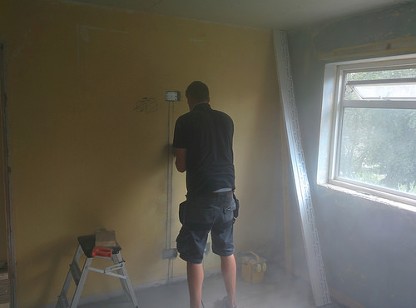
When you think of renovations, you will often think that you can just pick up a spot in your home that you can improve on. It is as if presuming that it does not matter which part of the home you renovate as long as there is a new addition that your prospect will see. It is better to focus on the best areas to improve on though. These best areas are those that will most likely give you a better return on your investment once you resell your home. Bathroom and kitchen renovations are typically the best areas to consider renovating as these ones will give you a ROI of about 60%.
Take renovations at your own pace
You will always think that renovations should be a one-time project which means that when you plan to renovate, every part of your home that needs improvement should be worked on all at the same time. While the whole idea can work at times, it can also mean more financial stress on your part. You will also feel exhausted about the endeavor considering that it is a one-time thing. Try working at your own pace instead and work on the renovation through several stages.
Remember that little things go a long way
With renovations, you will always think of things out of the box and when you do so you presume that only those big improvements can mean more money when you resell your home later. Well the truth is even small renovations can go a long way. Maybe what your home needs is just a fresh coat of paint to bring life to it.
Get the professional opinion of a home inspector
To spend on home improvements wisely, you will need help from experts, especially from home inspectors in Arlington who can assess what your home actually needs at the moment. They can take a closer look at every corner of your home to check on what needs to be fixed or improved. They will then make certain recommendations that are sure to add value to your home thus helping you maximize your renovation spending wisely.
|
|
8/20/15 |
The Major Issues To Look Out For During A Home Pool Inspection |
Home inspection is one of the most critical parts of preparing to buy a home. You need to be sure of what you are getting, which is why you need to spend a lot of time going through the details of the home. One of the components of home inspection that many people overlook is the pool.
If you are buying a home with a pool, you may be very excited about this fact, to the point where you might forget all about some of the potential problems that might arise. One of the issues you will face when buying a home with a pool with questionable quality is that it might turn out to be far more expensive than you had imagined.
To make sure that this does not happen, it’s always advisable to make sure that you have your pool inspected properly before buying any home. There are a few things that you ought to keep in mind when reading such a report including:
The state of the surrounding concrete
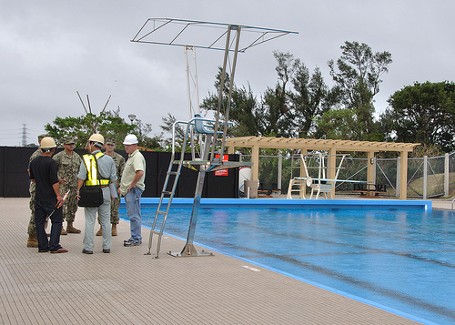
When doing a pool inspection, it’s often necessary to heck the deck around the pool. This is usually one of the parts of the pool that will give you the most information regarding the quality of the pool in general. If, for instance, you find that the decking is of low quality and is in the later stages of breaking down, it could mean that all the other systems associated with the pool are of low quality as well. This in turn means that if you bought the home, you should expect to spend a significant amount of time and money fixing it up. In addition to the structural state of the decking, one is also supposed to check for seals around the pool to make sure that they are not leaky.
The circulation systems
A pool will need circulation systems including pumps, a filter and heaters. These all need to be working properly for you to end up with a pool that you can safely use. When checking the state of a pool pump, for instance, one would need to find out whether it’s working properly, and also whether it’s suited for the type of pool one has. There are some people who end up getting low volume pumps which will not work well for the particular type of pool they have. In such cases, an upgrade would be necessary.
The peripheral structures
You also need to take note of the peripheral structures in the pool. These normally include the ladders, diving boards and all similar structures. They need to be strong enough to ensure that no injuries will be sustained when using them.
In a nutshell, the most important thing to remember is that when inspecting a pool, one needs to be very keen and very thorough as well. The above are some of the issues one needs to keep in mind to get this done correctly. You are also advised to seek the help of professional home inspection services in Arlington to get a complete inspection report, regardless whether you want to sell or buy a home. |
|
|
Home Inspection: What Common Problems Are Encountered In Electrical Outlets? |
Also commonly referred to as electrical receptacles or wall plugs, electrical outlets need also to be checked when a home inspection is being carried out. While professional home inspectors do check such components, not all of them are checked since some are hidden behind stored items or immovable furniture pieces. As a result, inspectors mostly inspect only the visible ones.
What are the main tools that are used in this kind of a home inspection?
Home inspectors in Arlington normally use different types of specialized tools to check for issues when it comes to electrical outlets. These include:
• Complex circuit analyzer for detecting the voltage, AFCI and GFCI receptacles, ground resistance, and much more
• A basic 3-light tester that is used to spot check wiring configuration
• One low-tech and one high-tech two circuit analysis tools
Here are some of the common electrical receptacle issues that are found by home inspectors during a typical home inspection.
Opposite polarity
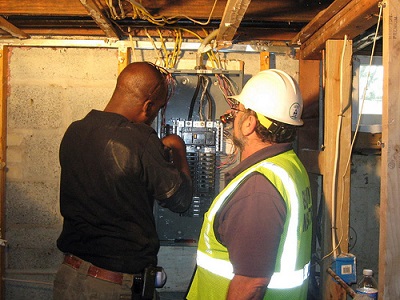
If electrical wires that are meant to go to the live (hot) and neutral ends are switched, then you have what is commonly referred to as reverse polarity. Although this issue has no effects on the normal operations of a basic appliance such as a lamp, the results can be dangerous, especially when changing a burned out bulb.
Changing a burned out bulb in a lamp that is connected a properly wired receptacle is quite safe, meaning that it is hard to get shocked. A reverse polarity electrical outlet lets the current pass to the threaded socket, something that increases the chances of being shocked when replacing a light bulb.
High resistance to the ground
For the ground to correctly work as a safety feature, it must have a low resistance to the flow of the electrical current so that a breaker is able to quickly trip when electricity starts to flow to the ground. Note that electrical resistance is measured in ohms. The recommended maximum resistance is normally 1.0 ohms.
No neutral
When a circuit tester indicates no neutral connection, it normally means that there is a loose wire in the main panel or the receptacle box.
False ground
In situations like these, the ground slot is normally connected to the neutral terminal of the receptacle. Often a shortcut to installing a 3-slot receptacle, this is a common electrical outlet issue in the older homes. With this kind of a connection, there is usually no ground connection, something that calls out for urgent repairs for the safety of all.
Outdated two-slot receptacle
The ungrounded types of two-slot electrical outlets were quite common in homes that were built before 1960. While considered safe, these unfortunately won’t accept the three-prong plug that the majority of modern appliances operate on, and that must be grounded to correctly function. Some Older homes owners often succumb to the easy but quite unsafe solution of plugging a three-prong cord, for example on their refrigerator, to a 2-slot electrical outlet.
To accomplish this feat, they utilize a conversion device that is commonly referred to as the “cheater electrical plug”. In case of an electrical problem, this can turn out to be dangerous to the appliance users and they may end up being shocked or even electrocuted.
|
|
11/27/15 |
The Big Mistakes You Might Commit When It Comes To Home Inspection |
One of the most common mistakes you can commit when it comes to owning a new home is the fact that you will not have it inspected. This is with the presumption that it has met the standards or passed local codes and standards. You have to remember that home inspection is vital even when this is the case. This will be your only guarantee that you will soon live in a safe place. While considering having your home inspected though, you will not want committing errors along the way. With this in mind, it pays to know some of the the biggest mistakes you can commit when it comes to this process.
Choosing a home inspector based on the price offered for the service
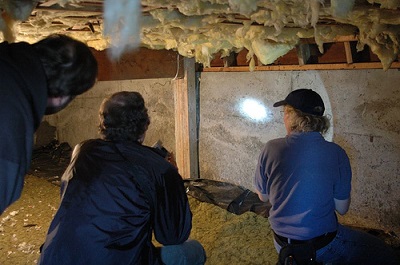
Many of you out there will love to have a cheaply-priced home inspection service. What you do not actually realize is that cheap price comes with cheap service as well. You have to take note that beyond the cost you will pay, you also have to make sure that you are hiring someone who is professional enough to handle all aspects of home inspection. In the world of home inspection, it is a fact that the person or company offering their services at the cheapest cost has the less experience as well. It pays then to check on credentials and professional affiliations of home inspectors.
Not involving yourself with the home inspection process
While you have scrutinized the credentials of your home inspector making you presume that it is perfectly alright to leave him alone in the process, you also have to take note that you also have to be involved in the entire thing. You cannot merely rely on a printed report that the inspector can give. Many inspectors out there, professional as they are, will encourage you to check on the home you will purchase yourselves. That way, you will be able to see if there are minor or even major problems that need to be solved.
Lack of following up on the expert's recommendations
Home inspectors will always make recommendations as to what needs attention when you buy a home. They expect that you, as the buyer, will follow up on such recommendations. This means, that you should make sure that the home is in tiptop shape before you close the deal with the other party. Never overlook these recommendations or else you will end up disgusted with the purchase you have made. Take note that purchasing a home, whether old or new, requires a huge amount of investment. If you want to reap the benefits of that investment, never close the deal without looking into what your home inspectors recommended.
Presuming that your home inspector knows everything
Remember that a home inspector cannot predict the future. They cannot tell you how long you will be enjoying that new property. The decision as to whether the home is good enough or not all lies upon you. You cannot blame your home inspector if something else fails in the future.
If you are looking to avoid these mistakes when it comes to home inspection, you should always go for a trusted home inspector. Try our services and you will see how we take our job seriously!
|
|
|
What Do You As The Buyer Do After The Home Inspection Is Done?HEADLINE |
The prime role of hiring a home inspector by a prospective buyer is to analyze the condition of the house he is planning to purchase. The inspector drafts an inspection report and gives it to the buyer that contains all the details. It will be wrong to say that this report is more like repair list for the seller and is neither meant to beat the seller with on price. Most of these reports comprise of a list of recommendations related to safety upgrades, safety hazard, repairs and improvements.
Many people are of the view that home inspectors are bound to come up with a long list of improvements that are required in the house so that their fee can be justified. This is certainly not true. Many issues that are highlighted during home inspection are negotiable. However, there are no hard and fast rules regarding the repairs that home seller has to complete after home inspection is done. There are times when buyers do not get good news after the home inspection project is completed. At this stage, the buyers are left with the following options:
• Negotiate the price with the seller again
• Cancel the purchase agreement
• Request the home seller to get the repairs done
• Stick with the sale
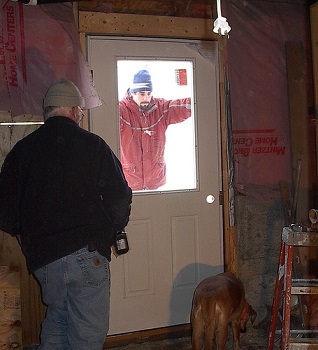
Negotiating the price again
In this option, the buyers hire their own professional to get the essential repairs done. They can easily look after the project after they have purchased the house. This seems to be a very practical approach but at times it really becomes difficult for the buyer to get the repairs especially when they are short of cash.
Cancelling the purchase agreement
This usually happens when the buyer finds that there are too many issues with the house he is planning to purchase or the issues are greater than what he can deal with. Agreement can also be cancelled if both parties do not come to any agreement.
Request the home seller to get the repairs done
The experts usually do not recommend going for this option primarily because the buyer is making the seller the general contractor of his new home. The seller would not have any intention to get a high quality work done and would see financial incentives by hiring the cheapest person in town. There are many times when such repairs are either not up to the mark or have been performed incorrectly.
It can get quite frustrating when you go to verify your repairs and find out that none of the repairs are right. To avoid such hassle, it is recommended to include in the agreement that only licensed contractors would be hired and etc.
Stick with the sale
We cannot say we are surprised when most buyers actually go with this option. If you are buying a used home, you should not expect everything to be perfect. When getting such house inspected, prepare yourself to face issues like damaged walls, shower leaks and appliance failure. After all, the seller may have already priced the property at a certain rate after taking all these into consideration already.
Of course, if you want to make sure that you give yourself the most options as a buyer, make sure that you get our specialists from Ricco Home Inspections to help you do a complete assessment of the property you intend to buy.
|
|
|
The Importance Of Home Inspection After Constructing An Additional Structure In Your Home |
For many people, a home is arguably the biggest financial investment they have. For this reason, it makes sense to protect the value of the home as much as possible, particularly if you intend to sell it at a future date for a profit. As a homeowner, chances are that there may come a time when you will want to build another structure adjacent to the house. Most of such projects often end up increasing the value of the property, but only if they are done right. There are a number of issues you should always address when you want to do this, one of the most important of which is proper inspection of the property before and after the construction.
Common inspection pitfalls

If you are a cautious homeowner, chances are that you had the home inspected before you bought it. By the time you bought it, you may have been sure that it passed all the main inspection criteria. This means that when you decide to sell it off in future, a potential buyer will be able to refer to your home inspection report to know the state of your property when you bought it.
However, a common pitfall that most homeowners find themselves in is finding that the dynamics have shifted once they decided to construct a new property close to the house. This might have negatively influenced the results of the inspection, which means that it may end up being a dangerous place to live in.
How to overcome this
In order to overcome this, you only need to keep in mind the fact that once you have an additional structure constructed in the compound, it would be wise to have inspectors go over the home to find out whether this has had a negative influence or not. In fact, you can even talk to them in advance to give you hints and tips on how to do the construction so that the home will eventually pass the inspection even after the construction. For instance, they can advise you on how much weight the new structure should be so as to reduce the likelihood of the whole structure sinking into the soft ground.
The consequences of not following through with this
If your home is not properly inspected after such construction, you are likely to end up living on property that has some inherently dangerous properties, including the sinking noted above. This will effectively make the home a more dangerous place to live in. It will also obviously reduce the value of the house, something that you don’t want to happen if you intend to sell the house in the near future.
It’s also possible to flout local regulations that could land you in trouble with civil law. There are many localities that have laws regulating the quality of such construction. If your new structure does not conform to such laws, you may end up paying heavily for it. Consulting a home inspector service in Arlington either before or after the construction will help you figure this out.
|
|
2/29/16 |
Home Inspection Essentials To Prepare Your Home For Spring Time |
Spring is one of those seasons of the year that allow you to enjoy the outdoors more. Remember, you might have been keeping yourself warm inside your home during the winter. As you tuck yourself in bed most of the time, snow has been doing its own job outside. Well, as soon as you feel that it is about to get warm outside, you have to get you act together. Make sure you include the following home inspection essentials to prepare your home for spring's warmer but somewhat rainy season.
Inspect your gutters and downspouts
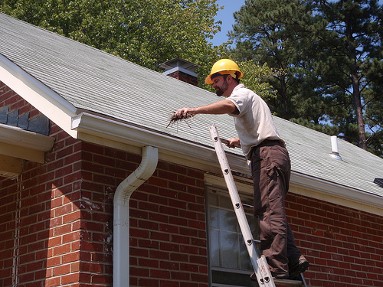
Snow may have done its work hiding in your gutters and downspout. Even those leaves and other debris may have been sneaking into these structures too. In order to make sure your gutters and downspouts are ready for spring, you have to check on them thoroughly. Start from the ground to ensure that downspouts and gutters remain tightly attached to where they should be attached. Alongside this, you have to check that ice and snow does not clog these structures.
Time to fix any cracks
The winter months may have left cracks on your walkway, your windows and even your home's foundation. You have to thoroughly inspect your home for all these cracks and make sure you fix them. Otherwise, it will be very easy for water to seep in to the structure and thus will eventually cause damage. Make sure you fill these cracks before spring rain sets in.
Check your windows too
Another part of the home that may have suffered a lot from winter's 'wrath' is your window. Check that there are no gaps between windows to prevent water from coming inside. It will be good to replace old caulking with a new one. Likewise, you should repair or replace your decaying window sills as the case may be.
Check your home for any junk that needs to be thrown away
This is often one of the most neglected parts when it comes to home inspection. Remember that winter may have left branches of trees hanging around anywhere. Others may have fallen into your yard. You have to check for this junk and make sure they are moved away from your home. Any stack of wood that you have inside your home must also be moved. You do not want insects to breed on these wet stacks of wood.
Inspect your furniture and fixtures
Other critical things that need to be inspected before spring comes are your air conditioning unit, lighting and outdoor faucets. Checking on all these furniture and fixtures is a good safety measure since it will give you a signal as to whether they can be used for the incoming season or not. Doing this, remember, will also prolong the life of your furniture and fixtures.
It is always important to consult an expert who can help you make the necessary inspections to help you prepare your home for spring. Contact us at Ricco Home Inspections in Arlington and we will come running to your doorsteps for your much needed service, no matter what season of the year it is!
|
|
|
4 Areas To Focus On During A Home Inspection |
Many homeowners have come to understand the usefulness of conducting a home inspection. But like you are about to find out, home inspection is not just about hiring any home inspector in the right season. It is in fact, not so much about when to do it but rather why and how to do it. The focus then shifts to prioritizing key areas that stand out as crucial as far as factors such as home safety and worth are concerned. So with that in mind, do request your home inspector to focus on the following areas during the inspection:
Home Interiors

The furnace, air conditioning and heating systems stand out as the most important appliances in modern homes. Carbon monoxide poisoning, mold and mildew infestation cases can easily be traced back to glitches in these systems. Having them inspected can therefore go a long way to keeping everyone under your roof safe. The inspection will of course, be a big plus for you if you intend to put up your home for sale. The humidifier, wood stove and fireplace also should be considered as priority areas.
Home Exteriors
Your windows and doors should not have leaks and drafts. You may have to caulk cracks if you find any around your doors and windows. Be keen on the garage door because that’s where most small animals get inside. In a nutshell, focus on any area where pipes enter the house and where masonry meets siding.
Gutters and downspouts also fall under home inspection priority areas. A clogged gutter or downspout can easily mean poor drainage or even flooding. That is why gutter inspection and cleaning should be done regularly. To ensure your gutters are always flawless, inspect joints then tighten brackets. Be sure to also replace old gutters with new ones that feature built in leaf guards. Other important areas on your roof apart from gutters and downspouts include shingles skylights and tiles.
Yard and Garden
The yard and garden areas can easily create bad impressions if you do not take care of them well. So start off by raking leaves! Most homeowners don’t know this but leaves can suffocate grass. What then follows in such instances is vermin and sometimes pest infestation. The good thing about yard and garden maintenance though is the fact that the raked leaves can be used as mulch. Simply put the leaves in a compost pile and you have an excellent source of nutrients for your gardening needs.
Remember to look for dead branches on trees and cut them off, trim or prune them. This will prevent damage during the windy season or during a storm. Do this every year so as to have a safe and neat-looking garden.
Porch and Deck
Inspecting the deck and porch areas is simple. Most companies that offer home inspection services in Arlington can finish inspecting the porch and deck areas within an hour. The stairs, supports and railing are the most important porch and deck areas to focus on. These areas are extremely important to the safety element when it comes to outdoor living.
If you have hired a reliable home inspection company, the home inspectors that they sent will know very well what to focus on when they see your house at first sight. Their experience will guide them to do a thorough inspection so make sure that you hire the right guys!
|
|
|
Common Problems Associated With Old Houses |
Everyone love old houses and such houses exudes a sense of style and heritage that many modern homes cannot provide. However, this charm and history comes with a price. House inspection experts claim that the buildings have a useful lifespan of fifty years after which it requires proper replacement of all major appliances and systems. Furthermore, several building materials that were once considered as safe may now be recognized as hazardous. If you are planning to purchase an old house, here is a list of things that you or your home inspector should look out for:

Knob and tube wiring (K&T wiring)
This type of wiring was done between 1880s and 1940s where the wires used to stretch between porcelain insulating tubes. Today, insurance companies do not insure a home that has K&T wiring still in place primarily because these wirings do not have a ground wire, are considered as unsafe and are quite vulnerable to overheating.
Undersized electrical services
This is a very common problem in old homes. In the past, electricity was only used for operating a refrigerator and a few lights around the house. Therefore, the size of the electric service coming into a home was quite small. 30-amp was the initial service standard that was later increased to 60-amps in 1930s and then to 100-amp in 50s. At present, 150-amp or 200-amp electric service is provided to meet the daily needs of homeowners for running major appliances like washer, dishwasher, dryer, furnace, air conditioner etc. If you want to have all sorts of major appliances in your home, you would have to get the electric service upgraded.
Non-grounded receptacles
In 1960s, there was a standard of having non-grounded receptacles comprising of only two slots. Modern appliances come with three pong cord and need a round hole for a ground connection. A ground offers a safe path for stray electric current that makes the appliances safe for use. If there aren’t any three-slot-receptacles in your home, you may not be able to plug in your modern refrigerator. Remember, ‘cheater plugs’ are not a safe solution and therefore must be avoided it to maximum.
Less wall receptacles
This is another common problem with the old houses. The houses of 1930s and 1940s would have one receptacle in bedroom and no receptacle in hallway and dining room. To meet your daily needs, you may have to run the extension cords all around the walls which is certainly not a safe alternative. You would surely need more receptacles and more circuits in your house to use your electrical appliances.
No insulation
With no insulation, you must be well prepared for high utility bills. Vintage homes were built with no floor or wall insulation, non-insulated single pane windows and minimal attic insulation that would have been deteriorated over the years. You would also be required to repair the air leaks around window and door openings.
When you seek home inspection services in Arlington, the home inspectors will highlight the potential difficulties you might have to face when purchasing an old house. You can then evaluate these issues, compare it with the price of the house and then make a decision. |
|
|
Key Areas That A Home Inspection Will Often Address |
It is common knowledge that home inspection is a great determinant to the value of your home in the current market. When a home inspector is contracted by the buyer of a house, he thoroughly checks for any damages that may require repairs or total replacement of non-functioning systems. The inspector’s report greatly influences the purchase by one of the following: discontinuing the purchase, reducing the sale price, calling for the seller to deal with repairs, or pulling the house out of the sale. Even with new constructions, home inspection services in Arlington are highly recommended. This helps you know where to mostly focus your energy and money on:
Basic elements
The inspector thoroughly checks the roof by climbing onto it. He checks to detail the foundation then checks for water penetration in the attic. For homes that are in areas prone to hurricanes, the inspector will scrutinize the binding of the roof just to make sure that the frame is connected according to the codes. The walls are inspected in case there are moulds or any leakages. The floors should be clear of cracks as they are a sign of detachment from the foundation base. The ceilings and electrical fittings should not have water leakages as well.
Outer liabilities
Thorough inspection on the outer part of the house will reveal areas that may need sealing in case of water leakage. Wrecked glass seals and cracks on the stepping stones are some of the areas that will require you to call in a pro for repairs. For the garage, the door could be tested on how it operates, that is, manually or automatically.
Roof system

The tiles and the flashing on the roof are closely examined in case they are loosely attached. Trees that come into close contact with the house might be a way of letting in rodents. Moreover, they are a threat especially during storms. The gutter is checked for any fragments and the drains tested on how tight or loosely attached the pipes are to the house. Windowpanes as well as chimneys are closely looked at for accurate sealing.
Piping system
The piping system includes drains and waste structures. The entry and exit of water is examined together with the distribution of water and the interior pumping system, if there. The drainage system must be properly checked for any seepage or mineral deposits. In addition, the filtering apparatus should be properly fitted. Some inspectors may also test the water just in case it has bacteria.
Electrical system
Electrical constituents are inspected to make sure that they fit and operate as they should and that they are safe. Conductors, distribution panels and the grounding equipment are examined for efficiency in operation. Where the smoke, panic, or carbon monoxide detectors are situated is vital in the report of the inspection.
HVAC systems
The conditioning system must be tested for verification that it is working as it should. The filters on the heat and air conditioning are inspected for accumulation. The supply pipes should not be corroded and the chimneys should be free of bird nests. Furthermore, the frame of the chimney, whatever material it’s made of, must be properly installed. |
|
6/22/16 |
What Can You Do Next After You Get Bad Home Inspection Results? |
It can be exciting to put your home up for sale in the market after deciding to buy a new one. However, people are often taken by surprise when they get bad home inspection results. This is because for the most obvious home imperfections, people do not take it hard on themselves. On the contrary, if you have done everything you can to ensure your home is good enough to be put in the market, then getting bad results can be really disappointing. In that case, what follows when you get bad home inspection results? Here is a look at some of the solutions that you may consider.
Winning the buyer
Inspections definitely sound like a bad idea after getting unexpected results. However, you can decide to look at it in the positive way. The bad report actually details some of the home problems that are hardly noticeable. These not-so-obvious home problems can cost you a lot in the future if you go ahead and sell your home without knowledge. A buyer can sue you and make things hard. In that case, you can opt to win the buyer by agreeing to help him out with home repairs. In essence, you should use bad reports as an opportunity to avoid possible lawsuits that may occur later.
Renegotiation
The second thing to do when you get bad reports about your home is calming down and waiting to see the possibility of renegotiation. If a buyer is really interested in your home, there are a number of things that he can present to you as considerations. For instance, he may request for home price reduction or even repair services. Different buyers interpret home inspection reports in varying ways. Some may not take it as negatively as you do while some may take negatively. All in all, it is important to ensure that the approach you take offers a compromise that works for you and the buyer.
Consulting with a realtor
You will definitely feel calmer when a home buyer requests for home repairs as a solution. This is because it gives you an assertive control over the situation. By consulting with a realtor, you can have the report given by a house inspector in Arlington reviewed effectively. It will be easier to discuss the conventional negotiating remedies that apply in your locality. In addition, you need to get a number of quotes from home repair companies. You may end up spending less on home repair.
Stay positive above all
Essentially, you need to stay positive when you get bad reports. Occasionally, homeowners get results that they least anticipate after a home inspection. However, it does not mean that your house cannot be sold. If you take the right steps to fix the problem, you can sell your house just a like person with a good report would do. Most importantly, bad inspections give you a chance to fix problems that could otherwise lead to lawsuits. After selling your home, the last thing you need is a disappointed home buyer who will not stop at nothing to press charges. |
|
7/28/16 |
How To Tackle The Home Inspection Report |
A savvy home purchase is never complete without home inspection. Experts compare the whole process as buying a car without taking it for a test drive. You simply won’t know if the home will offer you value for money or it will be a gamble. So to avoid taking chances, your best bet is to hire the most competent home inspector you can find. The whole process usually starts with your agent recommending that you include a home inspection clause in your home sale agreement. But other than just figuring out the property value that comes along with the services of a home inspector service in Arlington, how do you deal with the home inspection report? Read on to find out.
The value of a home inspector
A competent home inspector will take time to comb your property for visible flaws. These may include health and safety issues, negative and positive conditions of the property and just about any other condition that needs further or specialized attention. This takes time, depending on how big or small the property in question is.
To ensure the process is a success, inspectors always start with the most important areas. The roof, walls, foundation, windows, insulation, doors, crawlspace, attic and the basement are just but some of the areas that are always prioritized. Plumbing, wiring, cooling and heating systems are just as important as the aforementioned areas.
Getting the home inspection report

What should one do if for one reason or another the home inspection report reveals problems you can’t ignore? There are, of course, several options you can consider. You can:
• Ask for a cash back escrow
Be quick to request for a credit for the work to be done. Think of it this way- the home sellers are already on their way out. The last thing they want is to repair their home. The seller may therefore not approach the whole home inspection exercise with the same seriousness as the buyer. The best you can do therefore is to take a cash back credit at the close of the escrow. That way, you can use the money to finish the project on your own.
• Consider the bigger picture
Look at the bigger picture if you are a buyer. If for instance you want to renovate your bathroom within a few months, then you likely will not care a lot if its floor is damaged. Such small issues can always be worked on during renovation. These repairs are however still up for negotiation. Any buyer will simply be concerned. So if you find yourself in such a situation as a buyer, all you need to do is to ask the seller for a credit to help you fix such issues. The credit will go a long way to help you offset a significant amount of the closing cost.
• Be calm and react accordingly
This applies to sellers. Most home inspection exercises are always conducted when bother the seller and the buyer are present. It is during the exercise that the seller may want to hint that there are a few areas he considers to renovate or repair a few areas of the home. Be calm if you find yourself in such a position as a seller. If the inspector hasn’t raised a concern, then the issue is probably not that serious. On the flipside though, use such flaws from the seller to your advantage by asking a bunch of questions like when and how the seller intends to do the repairs. |
|
|
Potential Red Flags That Must Be Checked During A Home Inspection |
A home inspection in Arlington can play a vital role in the home buying process. Although the home inspector’s report provides valuable information, you need to see whether it is showing you a complete picture of the overall condition of the house you are about to purchase. There are chances that some information is overlooked that can prove to be costly in future. Following are some of the issues that must be highlighted during home inspection. Make sure you get maximum information on them so that you can spot issues before you close the deal.
Roof woes
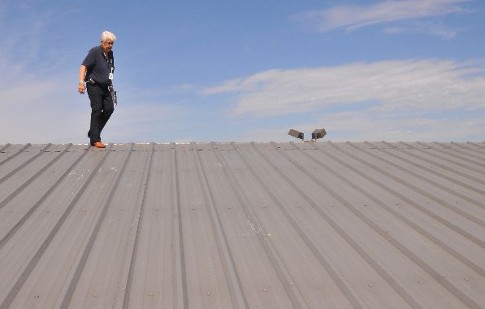
Home inspectors cannot perform a physical checkup of the roof legally. Therefore, with their limited visual inspection skills, there can be substantial issues that may remain unaddressed. Therefore, when you read the home inspector report, you may see a disclaimer about the status of the roof and further inspection might have been suggested. There are specialized roof inspectors for this purpose who can tell you the quality and life span of the roof.
Problems with HVAC
There can be problems with air conditioning system, ventilation and above all heating system. These issues can be easily overlooked during home inspection and can pose severe problems in future. Although inspectors confirm whether the HVAC was functional at the time of inspection, they do not give the guarantee whether it would continue to work once you purchase your new home. To get the exact status of your HVAC unit, you can contact HVAC specialist in this regard.
Water damage
External damage due to water can be easily spotted with visual inspection. However there are times when the damage is well hidden within the home’s walls that are hard to detect at times. Unless your home inspector is using an infrared camera for locating and documenting any moisture intrusion, you will never get an idea whether your dream home is waterlogged or not. Make sure you hire a home inspector who can wield an IR camera as he can save you thousands for sure.
Flooring problems
Home inspectors always look for obvious signs of wear and tear and other potential issues. So what about flooring issues that can be easily covered with lamination, carpeting and tiling? In case the floors and even subfloors are spongy or warped, the home would surely have moisture problem and can really cost you a lot in future. You should be alert when you visit your prospective home yourself. For instance, you can use your feet easily for detecting an issue with the flooring. The soft spots where the wood may be weak would give way as you walk across the house. Use your sense of smell and see if you sense a musty moldy smell.
How well the appliances are working
Home inspector can only tell whether the appliances are in working condition or not. They again cannot tell for how long they would work. You need to be vigilant in this case and ask the home owners to show the original purchase receipts, warranty manuals and maintenance records. These evidences will surely help you in making an informed decision. |
|

